

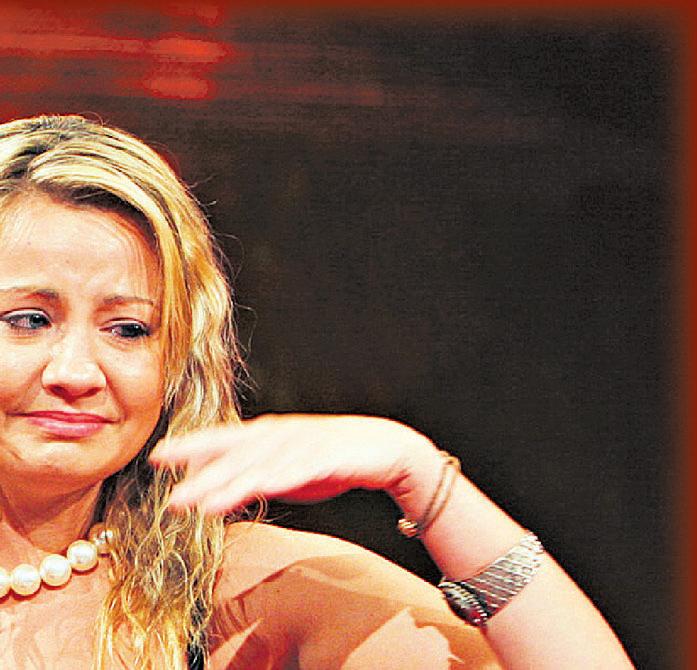

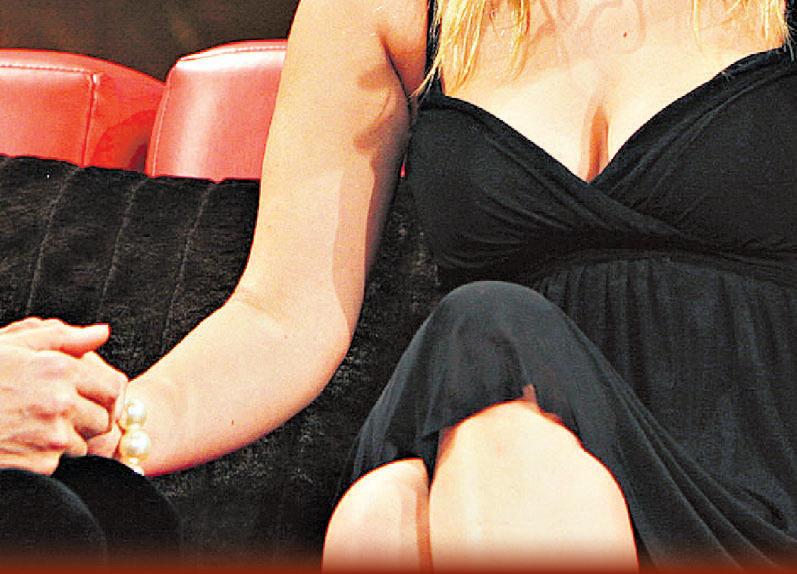
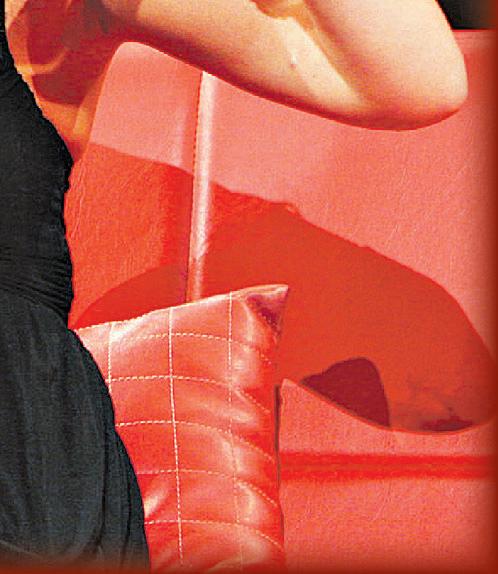
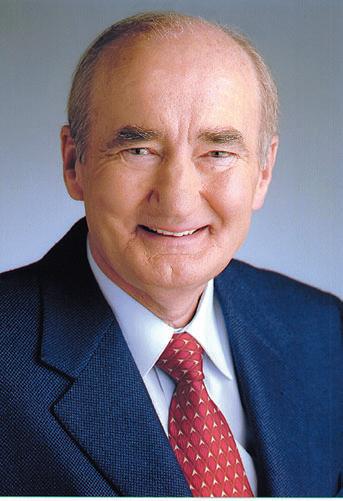
# 18 July2005FreeCopy Catholic magazine for families 49 Shepperton Road, (Just over the causeway), Victoria Park. Phone 9334 3333 DL 6061 Success through customer service Company Philosophy “That of a friendly and efficient company, trading with integrity and determined to give its customers the very best of service.” JohnHughes Sugar and Spice... A new look at how important gender is for children’s growth - and education 14 Meet the iPods How to choose from the bewildering variety of iPods on offer 5 Amazing woman Meet Samar, mother to more than 100 children in strifetorn Israel 7 discovery 'realit y' television? 'reality' television? what's so real about ... so about... Photo: AAP
Contents
CHOOSE THE RIGHT iPod
Christopher Breen looks at which iPod might be the one that suits you best 5
GABRIELLE, AGED 6, ALREADY PUBLISHED
Gabrielle Hogan from St Gerard’s School in Westminster has published her first book 6
MEET THE MOST BEAUTIFUL WOMAN IN BETHANY
Samar Sahar’s story is one of courage, persistence and remarkable love 7
AT THE FLICKS
What’s on at the movies - and whether it flies or sinks as entertainment worth spending your dollar on 10-11
HARRIED MARRIEDS
Couples who hardly see each other: meet some who’ve made the choice to focus on each other 12
BOYS AND GIRLS - WHAT’S THE LESSON?
A new book says that parents and teachers should pay careful attention to boys’ and girls’ differing needs 14
Discovery
Catholic magazine for families
EDITOR PETER ROSENGREN Letters to: cathrec@iinet.net.au
JOURNALISTS JAMIE O'BRIEN jamieob@therecord.com.au
BRONWEN CLUNE clune@therecord.com.au
MARK REIDY reidyrec@iinet.net.au
OFFICEMANAGER EUGENE SUARES administration@therecord.com.au inc. sales/subscriptions
ADVERTISING CHRIS MIZEN advertising@therecord.com.au
PRODUCTIONMANAGER DEREK BOYLEN production@therecord.com.au
587 Newcastle St, Leederville Post: PO Box 75, Leederville, WA 6902
Tel: (08) 9227 7080
Fax: (08) 9227 7087
Discovery is a bimonthly publication distributed through parishes and schools of the dioceses of Western Australia.
Parent seminars a hit
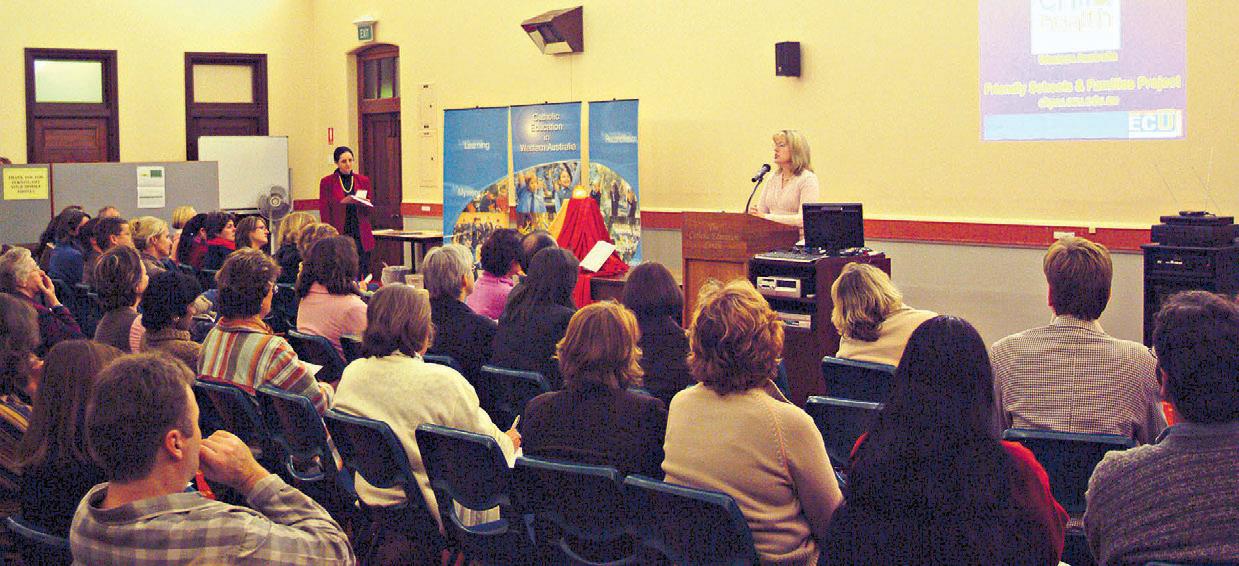
■ By Mary Retel
Maximising the future development of your children; becoming a more confident parent; better understanding your children’s needs…
These are the issues that the Catholic Education Office of Western Australia is inviting parents to explore and consider as part of the new, monthly Light on the Hill seminar series.
Recognising the vital role that parents play as the first educators of their children, the Light on the Hill seminars feature presenters who are recognised as experts in their specialised areas of child development.
The free seminars are presented on the third Monday of each month and are available to all prospective and existing parents, not just those whose children are enrolled in Catholic schools.
In an attempt to make the seminars as accessible as possible to parents, grandparents and all
carers, an onsite crèche staffed by professional carers is also available at no cost.
Building Resiliency in our children was the focus of the first two seminars that were facilitated by Erin Erceg, the Co-Director of the Child Health Promotion Research Unit at Edith Cowan University and Manager of the ‘Friendly Schools and Families Program’.
The high level of attendance at both sessions reflects the demand for practical information that parents are seeking.
Parents are hungry for any information or advice that offers an insight into some of the challenges facing our children today. The material presented in the Light on the Hill seminars will help parents identify and manage some of these developmental issues.
Our current and future generations are exposed to a plethora of influences and pressures that are driven by today’s fast paced, technological, media saturated society.
What our resiliency seminars revealed was that, as parents, we are not alone. Most if not all of our children are dealing with similar issues that are best worked through together.
Looking ahead to August and September, Light on the Hill will address the issue of Bullying, followed by Enhancing Self Esteem in October and November.
The August seminar will be held on Monday August 15 from 7.30 – 9.30pm in the James Nestor Hall at the Catholic Education Centre located at 50 Ruislip Street in Leederville.
Due to the fact that this day is the Feast of the Assumption, Mass will be celebrated onsite at 6.45pm in the Chapel of St Michael the Archangel and all are welcome.
Registration and crèche reservations for the seminars can be made by calling 9212 9201. Reservations are required by Monday August 8.
Mary Retel is Deputy Director, Catholic Education, Western Australia.
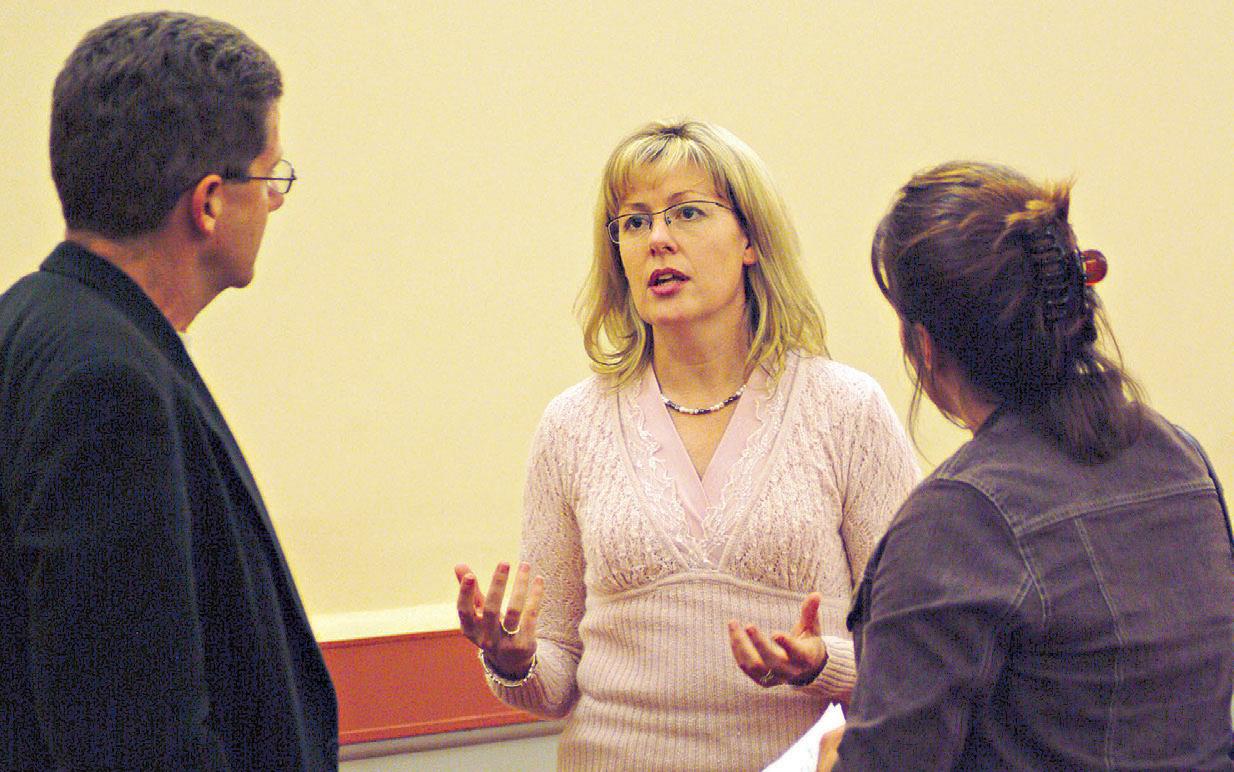
discovery July 2005 Page 2
Erin Erceg, co-director of the Child Health Promotion Unit at Edith Cowan University, presents her seminar for parents, held at the Catholic Education Office, which focussed on building resiliency in children. Photo: Phil Bayne
Ms Erceg talks with parents after the seminar held at the Catholic Education Office in Leederville last week. The semianrs are held on the third Monday of each month.
Archbishop Hickey to be on Channel 9 during Sunday news.
Archbishop Barry Hickey will appear on a regular spot on Channel 9 during the first commercial break in the evening news each Sunday in August, beginning August 7.
The spot will be repeated on the following Tuesday and Thursday each week between 6.30 and 7am.
It will also be available on the archdiocesan website (www. perthcatholic.org.au) with a special link that will enable visitors to view the one-minute film, download the transcript or make a comment about the topic for the day or about the Archbishop communicating in this way.
Archbishop Hickey said his appearances on Channel 9 were part of his continuing efforts to communicate with all Catholics and the general community.
“There is no doubt that television

has the greatest capacity to reach people with messages that are important not only for the Church but also for the wellbeing of our society,” he said.
“The idea of using commercial
television was enthusiastically endorsed at the two consultation sessions Bishop Sproxton and I held with young people during May. They felt that we should just proceed as soon as possible.”
The Archbishop said the program during the four weeks of August would be a trial with a view to presenting a regular weekly or fortnightly message throughout the year.
There had already been offers of financial support for the venture and it was hoped that others would make a commitment when they could see what was planned.
“We don’t expect one-minute messages to have a dramatic impact immediately, but they have the potential to make a difference over time,” he said.
“We need to be out there in the market place of ideas which is too often dominated by transient appeals to emotional excitement.”
The first few talks will be televised by Channel 9 on Sundays August 7, 14, 21 and 28.
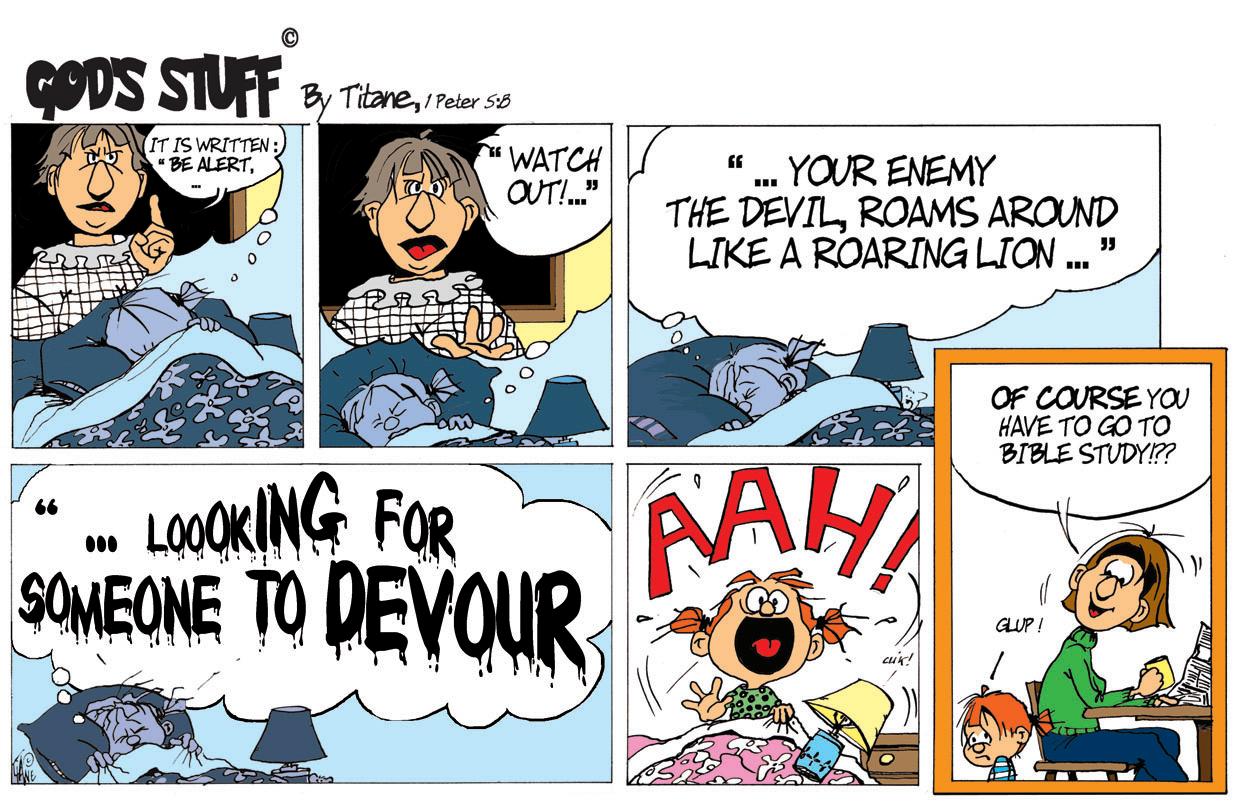



Why Marriage Matters popular with schools





discovery July 2005 Page 3 Tailored home loans to suit your needs • Extensive range of approved lenders • Specialising in first home loans and investment loans • Specialising in refinancing and debt consolidation • Your loan – your way We do the shopping for you • Let UBS investigate the best product for you at no cost • Save time, money and frustration • Meetings at a time and place convenient to you • Our home loan consultants are MIAA accredited we’re there when you need us You are in good hands at UBS Home Loans UBS Home Loans has been helping people achieve their financial goals and dreams for over 40 years Why not ring us -You’ll be glad you did!!! www.ubs.com.au After Hours: 0402 792 421 Email: gsmith@ubs.com.au (08) 9389 0036 Position Vacant For this role we are looking for a very energetic person to serve the church and community. The successful candidate must demonstrate: *Knowledge of small business management including but not limited to: *Stock control *Financial control *Staff supervision *An awareness of the Uniting Church and Christian Education principles will be an advantage The Uniting Church in Australia is looking to fill the full time position of Manager in its centrally located bookshop in Perth's CBD. Bookshop Manager Synod of Western Australia Position description and selection criteria can be obtained by contacting Natasha Passé or Rick Morrell: Ph: 9486 1577 E-mail: natasha.passe@wa.uca.org.au E-mail: rick.morrell@wa.uca.org.au Applications close 5 August 2005 With over 20 years experience, Caring Lady Funerals is a name you can TRUST. Specialising in Catholic Funeral Masses and servicing all areas, we provide unrivalled quality and care for you and your loved ones. Caring Lady Funerals, when Service and Compassion matters most. 1300 787 305 “A caring alternative” Caring Lady Funerals
to air
Barry Hickey: Regular TV spot
Archbishop
Archbishop
have
class
in smaller quantities for Religious
are still available from The Record, so if your school is interested ring Eugene Suares on (08) 9227 7080 or email him at cathrec@iinet.net.au A special discount applies for bulk
Great resource
Schools
snapped up copies of ‘21 Reasons Why Marriage Matters’ since it appeared in the last issue of discovery - both
sets and
Education teachers. Copies
orders.
for classes.
the family is the future
Men in the kitchen better husbands


■ With Derek Boylen
Warning: This piece is for men as a means of encouragement. It is not to be used by women for manipulative ends.
A recent national study has shown that men are doing more of the household chores. Having said that, women still spend 71 more minutes a day doing housework than men. It’s the age-old debate. Who is responsible for doing the housework? A typical conversation in our house goes something like this.
Karen: Could you change Isaiah?
Derek: [Stress levels reach Defcon
1] Sure, no probs. Where’s his clothes?
Karen: Where they usually are.
Derek: Where’s that?
Karen: In his wardrobe.
Derek: Where’s his nappies?
Karen: Where they usually are.
Derek: wher..
Karen: (interrupts) On the nappy change table.
Derek: Does he need a singlet?
Karen: Don’t worry about it. I’ll change him.
Derek: Sure, no probs. [sigh of relief, crisis abated, all systems returning to normal]
Feigned ignorance, while not the Christian approach to marriage, does have its advantages on a Saturday when the game is on.
The real crime is that all too often our ignorance is not feigned. We actually don’t know where to find the strainer or lemon juicer. We don’t know whether to use hot or cold water when we put the clothes on to wash. We don’t know where the basic household items like fly spray are kept. There seems to be a mysterious never-ending supply of things that never run out and somehow replenish themselves.
The justification that I always love and I must say I’ve been guilty of

using it myself in the past is that, “I work hard all day earning a living and you get the housework done.”
I must advise, with the voice of experience, such a strategy may result in physical injury.
The main flaw with this kind of reasoning is that marriages are not a 50/50 proposition. They’re 100 per cent. If we go into marriage with a 50/50 disposition then we inevitably feel hard up when we are doing 51 and they are only putting in 49.
Fortunately, there are no referees in marriage to determine who is putting in their fair share and who is not. It’s always 100 per cent for both.
This doesn’t mean that both people in a marriage have to do everything but it does mean that we try to take an interest in everything that the other does. Karen handles all the money in our marriage but I at least enquire if I need to curb my spending, I offer to transfer
RETIREMENT NEVER LOOKED SO GOOD.
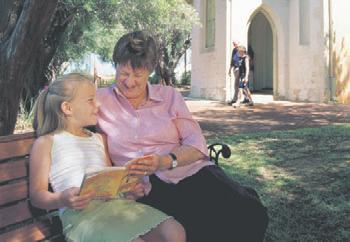
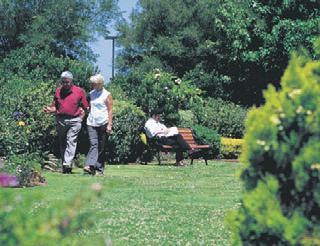

OVER 75% SOLD
money between the accounts on days when she has a lot on and can’t make it to the bank. It means that at the very least we can show our appreciation of the effort our partner puts into the marriage.
Every once-in-a-while us blokes need to ask ourselves, “how am I involved in maintaining our home and where could I do more?”
Maybe the dishes need doing or the clothes putting on. On the way home from work, could we stop off and get some of the shopping done?
Could we be more involved with the children or cook the evening meal?
On a final note, there are some positives to getting more involved in the housework. Though not the motive, there are certainly some pay-offs. Dr John Gottman, a marital researcher in the United States, says that men who do more housework tend to have better marriages. He also claims that there is a direct correlation between how much housework a man does and the likelihood that he’ll be physically healthier in years to come.
Derek Boylen writes on family issues for The Record.



For over 155 years the Sisters of Mercy have provided wonderful aged care and community services from the Wembley site.
Now, as part of a program to expand and develop these important services, a substantial area of this historic site is being transformed into an over 55s village of world-class.
Mercy Village–Wembley will offer luxury apartments, villas and terraced villas in a safe, involving and superbly planned community, with its very own chapel.




To find out more about the limited opportunities available to become a part of this incomparably well located, premium–quality village, simply telephone Karen Bailey or Chris Gaggin now on 1800 144 313.
Or visit the Sales and Information Centre located at the Catherine McAuley Family Centre, at 18 Barrett Street, inWembley.
You’ll soon discover that we’ve taken care of absolutely everything.
discovery July 2005 Page 4
MECA44
Which iPod is right for you?
■ By Christopher Breen
In the beginning (OK, in 2001), there was the original 5GB iPod—and we were lucky to have it. But in the past four years, Apple has made things a bit more complicated, adding several new members to the iPod family. Not too long ago, making an iPod-buying decision boiled down to exactly one factor: whether you had the money to pay for it.
Now that Apple offers three versions of its diminutive music player — the iPod shuffle, the iPod mini, and the colour iPod (including the iPod U2 Special
Edition and most HP-branded models) — at prices ranging from $149 to $599, there’s far more to consider. Will a small iPod or a large iPod serve you better? And is there any advantage to owning Apple’s iPod instead of one branded with the HP logo? I’ve had my hands on every iPod model Apple has released, so I’m in a unique position to give advice on finding the iPod that’ll be the best fit for you.
iPod with colour display
Not long ago Apple offered the fourth-generation iPod — a model with monochrome display — and a separate
iPod photo, an iPod that could not only play music, but display colour pictures on the iPod’s screen as well as project those pictures to an attached television or projector. In June 2005, Apple brought colour to all its full-sized iPods (the iPod U2 Special Edition included) and dropped the “photo” appendage from the iPod’s name.
iPod
The name change doesn’t mean that the iPod has lost any of its photo capabilities. As with the earlier iPod photo, you can use Apple’s iPod Camera
Continued on Page 15
UNDA student seeks helpers for East Timor
Notre Dame student Robyn Pickrell is raising funds to purchase mosquito nets for residents of East Timor.
Mrs Pickrell was inspired by the Millenium Development Goals which outline strategies to address extreme poverty in its many dimensions, which was further reinforced by her visit to the country last year.
“Whilst I was in East Timor I truly understood the meaning of poverty. They are located so close to us in Australia, yet are quite disadvantaged. On my return I thought about the ways that I could assist the East-Timorese to improve their standard of living.
The East Timorese people earn $1 a day so they’re not likely to spend $8 on a mosquito net. If we can supply these and educate them on the benefits of their use, then it is a simple, yet effective way to make a difference in the prevention of disease,” said Mrs Pickrell.

Mrs Pickrell has also been instrumental in establishing a social justice group at Notre Dame to assist with this and other causes. “We may only be a small ripple in a large ocean, but you have to start somewhere”. Service Learning & Volunteering Coordinator Jo Dallimore
said, “Robyn lives what she talks. She is empowering people to become involved and helping them understand that they can make a difference”.
Want to help Robyn Pickrell in her efforts to raise funds for this worthy cause? Contact Jo Dallimore on 08 9433 0841.
New web page for Da Vinci enthusiasts
Awebpage containing links to free resources about St Mary Magdalene and The Da Vinci Code has been published by a national office of the Catholic Church in the UK.
The Catholic Enquiry Office offers a free national service to people from all faith backgrounds and none.
A large part of its job is to answer questions and send out free information packs about Catholicism.
To mark the Feast of St Mary Magdalene on July 22, and in light of the continuing interest in Dan Brown’s novel, the Office took the unprecedented step of creating a web resource for ‘Da Vinci’ enthusiasts.
Office director Monsignor Keith Barltrop said: “What we wanted to do was to use this wonderful feast day to give fans of the novel the chance to discover who St Mary Magdalene really was and her role in the Catholic Church. Annually she is honoured as an exemplary follower of Jesus Christ and
as the first witness to the resurrection; Jesus’ rising from the dead.”
An important part of Catholic life is the veneration of saints; who are ordinary men and women who are honoured because of the extraordinary ways they loved God and their neighbour.
The late Pope John Paul II made more people saints during his Pontificate than any of his predecessors. Each year one feast day is set aside for each saint.
Clare Ward of the Catholic Agency to Support Evangelisation said: “St Mary Magdalene plays an important part in Catholic life. She has a very prominent role in the New Testament part of the Bible.
“The claims made about her in Dan Brown’s book have been the source of heated discussion which many argue are fiction and a distortion of the facts. In a positive sense, what the book does reveal however, is a widespread thirst for the truth.
It’s at this level that the initiative of
the Catholic Enquiry Office can be of service to the novel’s enthusiasts. Ultimately, the source of all truth is found in a person - Jesus Christ.”
The web page can be found at: www. life4seekers.co.uk/TheDaVinciCoderesources.htm and includes biographies of St Mary Magdalene, Bible extracts, prayers to the saint, a books list, articles, secondary web links, a ‘cake recipe’ and images of the saint.
Staff hope is that it will be used by a new generation of spiritual and historical enquirers to help them discover the role of this saint in contemporary Catholic life.


THE THEOLOGY OF THE BODY BY POPE JOHN PAUL II IS REALISED THROUGH THE USE OF THE BILLINGS OVULATION METHOD OF NATURAL FAMILY PLANNING
HOW? It fosters respect for the single person. It fosters respect for married couples. It strengthens the marital union. It fosters respect and love for the child. It fosters respect for the family.
If you would like to know more about this life enhancing Natural Method of Family Planning please contact Billings WA
For an Accredited Teacher near you.
Perth 08 9399 4394
Bunbury 08 9791 3696
Free call State Wide 1800 819 841 www.woomb.org
We also provide these services
Individual Consultation
Community Education
Pre-marriage Education
Seminars for Health Professionals
Education for Secondary School Students
VISITATIONS


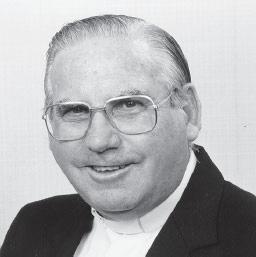

PILGRIM’S ROAD
Join a centuries old tradition along the pilgrimís path.
Lourdes • Loyola • Santo Domingo de Silos • Burgos • Leon • Astorga
Santiago de Compostela • Fatima
Departs 18 October 2005 $4295 priced at


discovery July 2005 Page 5 Flightworld Travel Perth (08) 9322 2914 Travelscene Lords (08) 9443 6266 FREE CALL 1800 819 156 Lic. 2TA 003632
PILGRIMAGE S Rome (3 nights) Medjugorje (7 nights) Visit this village of grace and peace where itís reported Our Lady still appears daily.
Departing 27 July, 8 September, 8 October and 30 October 2005. Medjugorje only option also available from $2895 $3490 from CATHOLIC HEARTLAND Czestochowa • Auschwitz • Wadowice Krakow • Prague • St Petersburg Optional Moscow Extension A 14 day pilgrimage Departs 16 Sept Optional link to Irish Heartland $5095 priced at $3795 from RETURN TO THE HOLY LAND (price ex-Sydney) Pope John Paul II encouraged ìpilgrimages of peace to the Holy Land... I encourage it with all my heartî. Cairo • Mount Sinai • Petra Amman • Sea of Galilee • 13 days Optional Jerusalem extension (4) Departing 15 Sept with Bishop John Gerry and 17 Oct 2005 All prices listed do not include taxes
HARVEST
MEDJUGORJE
OF
• Fatima Anniversary Avila • Burgos • Garabandal • Loyola Lourdes • 13 days Departs 10
& 10 October 2005. $4495 from Optional Medjugorje Extension Australiaís most popular Marian journey.
MARY Lisbon
September
East Timor: little things like mosquito nets make a big difference. You can help.
Meet Gabrielle, 6, writer
■ By Jamie O’Brien
How many six-year-olds are published writers?
Gabrielle Hogan is proud to say she is.
The Year One student from St Gerard’s Primary School in Westminster has written a children’s book, Gabrielle’s Magical Garden, with the help of her parents, Kim and Dale Hogan.
Published by Indian Ocean books, it is set to be launched on August 26 at the Blend(er) Gallery in Joondalup.
After reading about ways parents could improve the literacy and numeracy of their children suggested in the school newsletter, Mrs Hogan went about downloading images from the internet to help Gabrielle form ideas.
For the next ten weeks, Gabrielle would sit with her mum once a week and tell the stories which, although separate, form one narrative. The
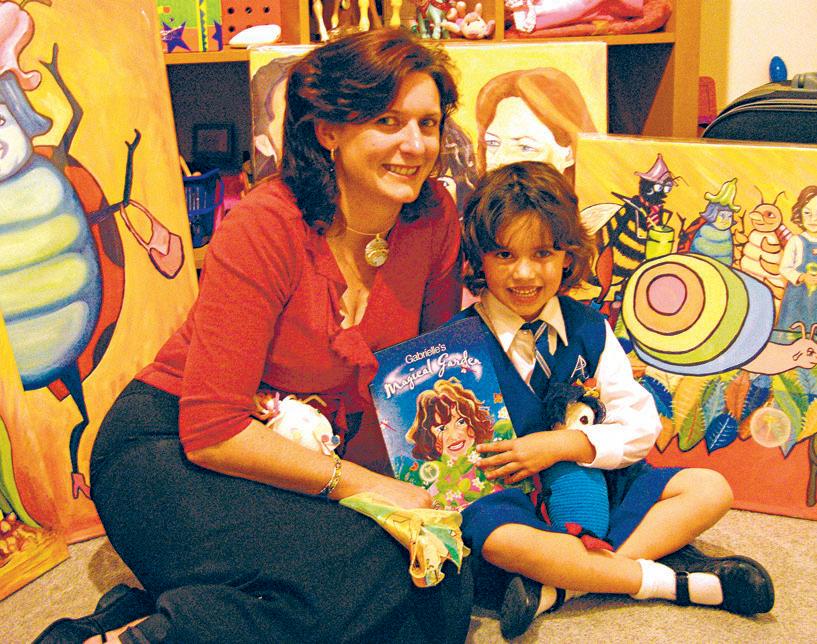
whole process – writing and editing – has taken nearly 12 months.
“Most of the words are even from her vocabulary,” Mrs Hogan said.
“Gabrielle’s mind is full of imaginary thoughts, people and
places.” Gabrielle came up with the idea of the ‘magical garden’ after going on a holiday to Singapore and Melbourne last year with her parents.
One of the main characters is
Poppy Blackney, a close friend of Gabrielle’s father she met in Singapore, who had a “fantastical” garden.
“It was filled with statues of daisies, gnomes, fairies, and a lily pad with a frog on it,” Gabrielle said.
Gabrielle said all the imaginary figures come from “my brain.”
All the characters are people that Gabrielle is close to – her neighbour, friends, cousins, and even her parents.
Close relative Linda Ratyna illustrated the book according to Gabrielle’s instructions, and her father Dale has framed the originals.
Gabrielle’s teacher, Julie von Bergheim said Gabrielle adds a spark to the class.
“She has always entertained me with her wonderful story ideas,
Anyone interested in attending the launch is invited to contact Kim Hogan on 0403 896 974
Students awarded for leadership and contributions
■ By Phil Bayne
Three students from Lesmurdie and Rockingham have been recognised at the third biennial Awards of Excellence in Catholic Aboriginal Education held in Fremantle recently.
Successful nominees in the Outstanding Student Award, Dylan Nott and Egan D’Antoine, both of whom are in Year 12 at Mazenod College in Lesmurdie, and Vinka Barunga, a Year 11 student at Kolbe Catholic College, were recognised for their leadership qualities and commitment to their studies. Dylan was reawarded for his
leadership by example and his excellent role modelling for the junior students. Commenting on the award, Dylan said it came as a great surprise.
Classmate Egan was nominated for his leadership qualities and his tenacity. He participated in the Mazenod College Leadership Process 2004 and has been employed at Bentley Hospital for the past two years.
Vinka was recognised as a highly motivated and diligent student who possesses a great determination to succeed, the evidence of which can be seen in her aspirations to study medicine.
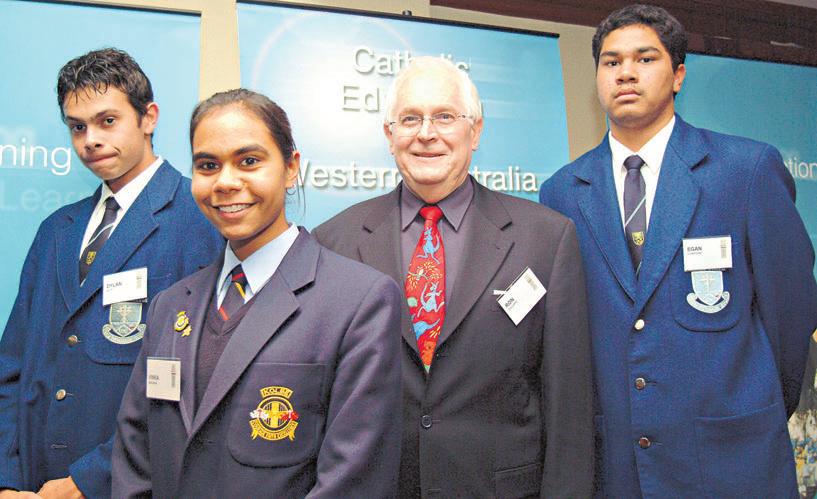

Legally downloaded music tripled in 2005
The number of digital music tracks legally downloaded from the internet almost tripled in the first half of 2005 as the use of high-speed broadband connections surged around the world.
The International Federation of Phonographic Industries said 180 million single tracks were downloaded legally in the first six months of the year, compared to 57 million tracks in the first half of 2004 and 157 million for the whole of last year.
The federation credited the increase to a 13 per cent rise in the number of broadband lines installed around the world, along with an industry campaign to both prosecute and educate against illegal downloading.
It said there was just a 3 per cent increase in illegal filesharing to 900 million in July, from 870 million at the start of the year.
“We are now seeing real evidence that people are increasingly put off by illegal file-sharing and turning to legal ways of enjoying music online,” said John Kennedy, the IFPI’s chairman. “Whether it’s the fear of getting caught breaking the law, or the realisation that many networks could damage your home PC, attitudes are changing, and that is good news for the whole music industry.”
Game may be pulled
Popular computer game Grand Theft Auto: San Andreas may be withdrawn from sale in Australia over hidden sex scenes.
The Office of Film and Literature Classification is considering changing the game’s classification after the US manufacturer confirmed there were sex scenes in the retail version of the game.
The issue came to light last week when a freelancer released a software “mod” making it possible to view the sex scenes.
US authorities last week gave the game an adult rating.
The game was released in Australia last October with an MA 15+ rating, as it contained “medium-level animated violence and medium-level coarse language”.
But as there is no R rating for video games in Australia, a change of classification would force its withdrawal from sale.
Take Two Interactive said the sex scenes had been built into the PC version and also those written for Xbox and PlayStation2 consoles.
discovery July 2005 Page 6 Luxury Coastal Living 3 Bedrooms / 2 Bathrooms / Fully Furnished & Equipped 0400 292 100 LifestylesforLeaseorSale Lifestyles for Lease or Sale
Gabrielle with mum Kim holds a copy of Gabrielle’s Magical Garden.
Ron Dullard, the Director of Catholic Education in Western Australia with the 2005 Outstanding Student Award winners (L-R) Dylan Nott, Vinka Barunga and Egan D’Antoine
Love conquers in Palestine
■ By Andrea Finessi
“Ipass through this world only once. If there’s a good to do, a kindness, an action, let me do it now, O God, because I won’t pass this way again.” Samara always repeats these words. She says them in Italian, learned from her many friends in Italy.
Samara Sahhar is Palestinian and has lived in Bethany since 1971, when her parents moved there from Jerusalem. For 33 years, she has run an orphanage begun by her family.
They started by renting a very old room used for sheep, in order to be able to accept ten children, and while her father said, “Ten, that’s all, no more!” the Israeli social worker continued to entrust them with more. Later, having bought a piece of land and built a new structure, it became possible to host more Palestinian children. “It was the realisation of a dream.”
For Samar, difference in origin doesn’t matter. “What language does a child cry in?” her parents replied when asked why they, Christians, would care for so many Muslim children.
Today her “home” in Bethany is full of well-fed children who look at you with amazed and curious eyes, children who come up to you and want you to take them by the hand or pick them up. They don’t have parents, and Samar has become a mother for all of them.
Space for everyone
“Here in the Holy Land, where Jesus brought all His love, it’s a sin that there should be war. We must always look for people who
Meet Samar Sahar. For more than three decades this unassuming but remarkable woman has courageously done something extraordinary and beautiful.
can shake hands for a future in this world. There’s space for everyone,” she sayd.
Among these people, she has chosen the most innocent, children who become adults and have the consciousness that Samar has transmitted to them.
One of these particularly impressed her. “A boy who grew up with us went to Lebanon and was asked to kill some Christians. He responded, “How can I kill Christians, when the people who most loved me were precisely them, my family in Bethany?”
Samar stops to think. “They continue to follow our history, with the desire and the curiosity to see things for what they are.”
For Samar, difference in origin doesn’t matter. “What language does a child cry in?” her parents replied when asked why they, Christians, would care for so many Muslim children.
It is a huge responsibility. She has over 100 children - 72 boys and 31 girls, who live in separate facilities. After the boys’ orphanage, a home for girls was created in response to the need to help some girls and women, because there are no facilities in all of Palestine to host them.
“I began by welcoming the sisters
of some men who were already with us, and when the social worker sent me a family, I felt responsible for accepting not only the men, but also the women who needed a home. I created a new structure and called it ‘Lazaros,’ because I always ask God to give life back to these women in Palestine, as Jesus did with Lazarus.”
The girl at the Church of the Nativity
One day, three nuns, walking to Bethlehem, found a girl chained in a cave. Some parts of her body were burned. They brought her to the hospital, where she stayed over a year while she was treated and had several plastic surgeries.
“Now, she is thirteen years old, and is attending school for the first time. She didn’t want to go, but now she is one of the best students. Her report card for the first semester was one of the best. Now we also have her sister, who also was burned all over by her mother.
“Some time ago, we went to the Church of the Nativity in Bethlehem, and I told her, “Go to Jesus and ask Him for something.” When she returned, she told me, “I asked Him to forgive my mother.”
Samar is silent for a moment, and then says, with the smile of someone who never ceases to be moved by this child.
“She was clubbed in the head and lost all her teeth; she has trouble eating. That this child could ask Jesus to forgive her mother for everything is a miracle!”

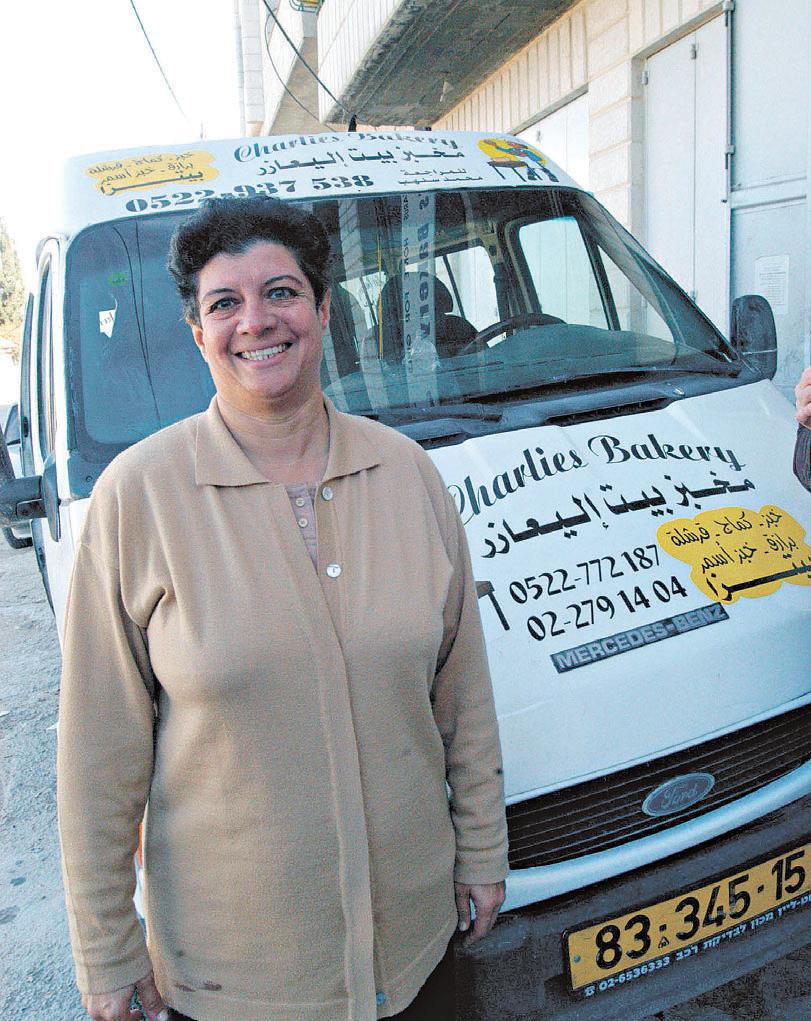
Bread in the garage Samar’s story is full of miracles. One of these is the bread bakery, “the biggest in Bethany.” The idea was to earn some money for the orphanage, feed the children, and give some Palestinians an opportunity to work.
Samar signed a contract for $75,000 with a Tel Aviv Israeli to buy the machinery. “I was penniless, and feared ending up in prison, but in the end everything was paid off, thanks be to God.”
Rent for the space on the main street was too high – an enormous figure. She found a garage in a very isolated spot. “I rented it and modified it to become a bakery.
“Everyone said I was crazy, and told me that things couldn’t work this way. To my great surprise, when they built the wall, the road in front of the bakery became the city’s main street. Someone came to my office and said, “So then, you’re working with Sharon!” I replied, “Someone much more powerful: I’m working with Jesus.”
The Israeli from whom she bought the machinery didn’t want to come to highly fangerous Palestinian territory to assemble it. After a great deal of insistence, she convinced him. He said: “I wouldn’t come for a million dollars, but for you, Samar, okay.”
When the work to prepare the bakery was complete, Samar held a party, a dinner in a Bethany restaurant. At the same table, there were Muslims, Jews, and Christians.
“We ate together, and it was a beautiful witness for all my children as well.”
Generating an awareness of the meaning of life
Being the mother of so many children is a great help. Since 1971, Samar has been living the experience of virginity – “the better to live my maternity with the children,” she says.
In 1994 she entered the Memores Domini, a group for celibate women men and which is part of one of the new worldwide movements in the Church known as Communion and Liberation, founded by Italian priest Fr Luigi Giussani.
She learned that generating life signifies “generating an awareness of the meaning of life,” as a parent does. Samar is moved again when she talks about her “maternity.”
“I felt that these children without a mother, without parents, were calling me to be with them to continue the work begun by my parents, with all my heart.
“I call them my children. We are like a family, and we have never considered each other in any other way. In Bethany, in this place, I felt my vocation to be a mother.”
A Christian Palestinian and mother to a hundred children - her testimony of charity and her very presence in this land are signs of peace and change for all the children she gas generated.
Reprinted with permission from Traces, magazine of Communion and Liberation
discovery July 2005 Page 7
Samar, at right, with some of her orphan children. Christian, Muslim and Jewish orphans are raised without distinction for background, race or religion.
Photos: Stephania Malapelle
Samar with her bakery’s bread delivery van.
■

The shallowness of reality TV
Essay
How serving up trash on national broadcast television tells us where TV owners’ priorities really are - and its not with us.
By
Peter Rosengren
Forgive me if what follows seems unduly sceptical.
But when a close friend rang me last night and told me his seven year-old son was watching Big Brother I felt a pang of regret for that boy that was hard to express.
Whoever thought it all up was on a winner. Take the following well-known program. Get a bunch of guys, introduce them to a beautiful transsexual, without letting on that ‘she’ is really a ‘he.’ Film all their advances to ‘her,’ one by one, the more titillating the better. Then reveal it all at the end of the series. Build up towards the big revelation, episode by episode.
There’s Something About Miriam, as the show aired locally on Channel 10 was called, was a hit. No doubt about it. Or, let’s see… something different again? How about we go out and get some ‘white trash’ types; people at the bottom end of the educational and socio-economic scale. Not necessarily too bright. But it helps
if they’re plain; ugly doesn’t hurt, either. Offer them something they’re vulnerable to, especially the women – plastic surgery worth tens of thousands, maybe hundreds of thousands of dollars. Play on their belief that undertaking potentially life-threatening surgery will improve their happiness and self-esteem. Take them away from their families for months until all the (visible) scars are healed. Then play out the syrupy moment of revelation for all it’s worth.
The list goes on. Welcome to reality TV. Welcome to the new colisseum. Welcome to television’s latest attempt to make money. Out of us, our families, our children. Here’s who reality television is really all about. The growth sector in broadcast television in the last couple of years is aimed at one person and one person only. You. Your family. Anyone in the house. Reality TV, as it’s being called, really depends on two things: money and viewers.
Money is the motive. In fact, it’s the only motive. And you are the way to make sure broadcast television stations get more of it. In fact, it’s mainly what they care about.
The growth in American reality TV has also generated clones everywhere, carefully-premised situations contrived and populated with willing (we guess) audience members prepared to do almost anything they can to win the pot at the end of the show. Why? Money, money, money.
The success of such programs relies on the natural inquisitiveness


of audiences. It relies on that basic impulse most of us have to know what’s going on that we’re not usually allowed to see. Put other people’s lives, intimate parts and all, on display on free-to-air television and it’s a safe bet audiences will be unable to resist tuning in. Ratings soar. Advertisers pay to get into
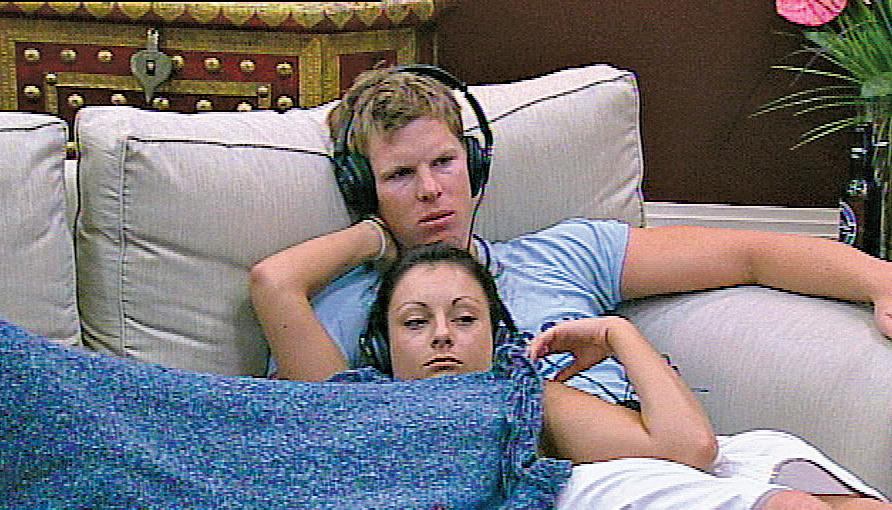
THAT timeslot. Watch the cash roll in. And there’s more. Get the viewers to participate by voting or registering opinions or the like by making charged calls. There - even more money. Oodles of it. Paid for by the viewers. And has anyone ever revealed how much money is made from this aspect of viewer involvement alone?
If we want to analyse whether there’s a problem here we can generally count the TV station decision-makers and their corporate officials well and truly out. Heard any reservations from them about this trend lately? For them, there is relatively little question, if any, as to whether this sort of programming is doing anyone good. In fact, it’s almost no consideration at all, one would suspect, given the nature of what they are broadcasting in order to bump up ratings and improve profit margins.
And that’s part of the problem that thoughtful people are increasingly finding troubling, even disturbing.
Reality TV is doing nobody any good. In fact, it invites the question: is it doing any harm?
Let’s be frank. What we are talking about here is, with rare exceptions, LCD TV: Lowest Common Denominator television. Really it goes further than that.
harm’ is simply absent from reality tv which doesn’t usually have to deal with the consequences. They are too remote, too in-the-past. When There’s Something About Miriam turned into a smash success for Channel 10 locally it was partly because of the controversy (golden rule number 2: any controversy is great publicity). The randy participants found out they’d been had. The tables were turned. Then they sued. Maybe the show’s originators hadn’t planned it. But maybe they had. The news, released early on in the series helped push the magic ratings through the roof. The money flowed in to television stations broadcasting it, courtesy of advertisers scrambling to take advantage of the amorally novel subject and the controversy.
But what does it say about us?
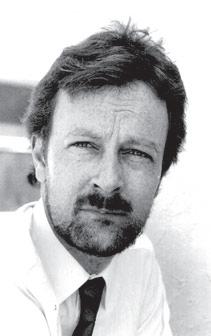 ■ By Paul Gray
■ By Paul Gray
Tonight on Big Brother
Uncut: Gary and Christine discuss the teachings of the Dalai Lama.
Christine says the Dalai has a cute outlook on life. But Gary strenuously disagrees.
society. A lot of the excuses artists have used over the years for deliberately provoking public outrage have seemed highly convenient ways of attracting valuable publicity. But at least they’ve felt the need to make excuses.
With Big Brother, there’s not even a pretence of this. The show is based on unadulterated lust for TV ratings and advertising revenue. There are no fig-leaves on Big Brother Uncut – literal or metaphorical.
That leaves us with two questions. How did we get here?
And where do we go next?
from earlier eras, from Hitchcock’s classics to David Lean’s Lawrence of Arabia, often dealt with the grisly and the ghastly.
But these movies conveyed their disturbing subject matter without depicting explicit onscreen violence, or even sexual activity. Were we culturally so much poorer for that?
No. In fact we were richer.
So where do we go from here?
Perhaps a better way to put it is ‘How-much-can-we-get-awaywith-TV?’ Concern for an audience appears not to be a factor taken into account when calculating a show’s potential to make money. Concern for a ‘participant’ appears to be almost non-existent.
"There’s a big motive for producers to hit the lowest common denominator button, push the moral and situational envelope to the ‘max’, so they get the biggest audience."
The formula for reality tv’s success is simple, often brutal and de-humanising. It’s de-humanising because usually it rests upon using people, especially their vulnerabilities or their freakishness (a la the Osbornes), to provide ‘entertainment.’ It depends on using its subjects. And, to maximise the take there’s a big motive for producers to hit the lowest common denominator button, push the moral and situational envelope to the ‘max’, so they get the biggest
to be the golden rule of reality television. How? Easy: tits, bums, family feuds, inuendoes, angst between friends, plotting, conniving, betrayal of relationships, contrived sexual liaisons.
Reality tv is therefore far less real than it makes itself out to be. It variously gives people motives to be dishonest, deceitful, nasty, tasteless, bitchy or ruthless to each other. It extracts the maximum impact out of the human equivalent of putting lab rats into a glass box and stimulating them into performing for our enjoyment.
Only we don’t enjoy it. We goggle away, fascinated at seeing private moments broadcast publicly, gripped by the drama of the personality clashes, waiting breathlessly for the next development. So we really don’t enjoy it at all. We perve at it. We become the addicted peeping toms glued to our sets uncritically sucking in everything that’s offered. Using people in this way, one would think, is hardly a sound motive for creating a televison program to be viewed by millions, especially the very young.
The absolutely fundamental principle, also to be found in the Hippocratic Oath taken by doctors beginning their careers, ‘Do no
The two things reality tv lacks above all others are goodness - and reality. It usually relies on exploiting nastiness and tastelessness, goodness tends to be marginalised. This trash served up by our broadcasters is only that and nothing more. I wonder if they care? There is no fidelity in it. There is no nobility in it. There is no educational value in it. There is nothing uplifting, nothing that leaves us feeling happier, more determined to change our own little corner of the world for the better. We don’t come away more generous, say, to the starving in Africa or the poor in our midst.
Would the producers of Big Brother donate the same amount of prize money and revenue from charged calls to the starving in Darfur? I won’t tell you what I think the answer to that is.
Seen in its wider context, for ‘reality’ like this to prosper it helps enormously if people are convinced or lulled into believing that none of this matters or is immoral, that morality is nothing more than doing what you like as long as you don’t hurt anyone else.
Should we be fooled? Can we afford to be? This kind of viewing is called moral relativism, the view that morality is different from group to group, society to society, that there is no such thing as right or wrong, standards of decency that are universal. A society that embraces moral relativism, much less broadcasts it into homes, very quickly loses the ability to defend any kind of absolute value at all. And, I sometimes wonder, what would the consequences of this be?
Counter-cultural parents and teenagers should start a TV revolution.
Gary says contemporary Buddhism is just a pale shadow of the classic traditions of Eastern Enlightenment – and he won’t compromise. In fact, he’s ready to punch any Big Brother housemate who disagrees.
Christine’s not ready to compromise either, even for the sake of inner harmony.
Things are set to get really ugly on Big Brother. Will Gary and Christine come to an understanding? Will there be spiritual peace in the Big Brother house?
If only reality TV was about that kind of scenario. If it showed real people arguing over things that matter, might even watch it.
Unfortunately, reality TV – typified by this year’s Big Brother Uncut series – represents something entirely different from the reality of life. It’s about cheap entertainment. The cheapest.
A national debate has been stirred over the downmarket direction led by this year’s series.
Broadcasting authorities have been called upon to curb its offensiveness.
I never watch Big Brother myself, but it’s clear from what’s been documented lately that the show deliberately pushes the boundaries of television entertainment.
The fact Big Brother is only entertainment makes this debate different from earlier debates over artistic and pictorial boundaries.
The debate, for example, over the hanging in a public gallery of Andres Serrano’s painting Piss Christ.
Artists have been stretching the limits of offensiveness for years –in fact, for generations. But they’ve usually claimed higher purposes for doing so.
Purposes like artistic freedom, the right to self-expression and the artist’s courageous desire to tackle the hypocrisies of an affluent
I blame neglect for creating a culture where Big Brother Uncut can do whatever it does, today. It’s true that most of us haven’t lobbied TV networks directly to ensure strong broadcasting standards are maintained in relation to depictions of sex.
But neither have most of us complained over gross depictions of violence over the years. One commentator has pointed out the inconsistency here.
He said Channel Nine’s CSI series would be seen by many more kids than see Big Brother
Some say that if you don’t like what’s on Big Brother, then turn off your TV. That’s what I’ve been doing – but I’m still concerned for our culture. think if we want improvement, we’ve got to insist on accountability.
We should make TV networks accountable by lobbying them, and lobbying the advertisers. One way I’d like to see this happen is through Christians and Muslims working together to encourage family-oriented advertising – and to discourage the rubbish.
But we should also be accountable in our own lives. We should examine the attitudes we ourselves adopt towards the human body. Do we abhor depictions of violence, as well as porn? Are we consistent? The Big

Photos: AAP
– and CSI shows horrific scenes from the morgue. Knives stabbed into eyes, burned faces of corpses, bodies cut open to reveal the organs. So long as no private parts are shown, it’s OK.
This is a trifle hypocritical, don’t you think? It’s also a sign of how we’ve neglected to insist on respect for the human body in entertainment.
I don’t think this disrespect was always there. Many great movies
Brother controversy may reveal even more about our culture than what it reveals of housemates’ personal anatomies. They’re just performers, after all.
But it’s the people who are looking on who really make the difference. The question is, what difference are we making?
Paul Gray is a columnist for the largest circulation daily newspaper in Australia, Melbourne’s Herald-Sun, and writes for discovery and The Record.
discovery July 2005 Page 8 discovery July 2005 Page 9
In There’s Something About Miriam, Miriam was apparently in the driving seat behind were the networks. But will the networks still love ‘her’ after her ‘use-by’ date has expired?
It wasn’t supposed to happen: a temporary crack emerged in the glitzy facade when Big Brother host Gretel didn’t know how to handle an unscripted and uncomfortablemoment when House resident Merlin Luck unveiled a protest at Australia’s treatment of refugees in the 2004 series. Part of the problem might have been that the show’s producers had not intended Big Brother to be in touch with reality or concerns like refugees, preferring instead to focus on titillation and intrigue. Refugees could be bad for ratings. audience. Get down and dirty generally seems
Photos: AAP
Big Brother knew how to take advantage of Michelle, 25 and Glen, 21, by broadcasting their sexual activities with each other on late night television. But questions remain: will the couple still be so keen on their ‘fling’ being broadcast for the entertainment of viewers in years to come? Will their children - if they have any, together or with others - be proud of their parents? Will their parents have more - or less - legitimacy in the eyes of future children when they try to explain notions such as responsibility?
At the flicks...


Be witched (Columbia)
Amiable retread of the 1960s sitcom, as a washed-up movie actor (Will Ferrell) decides to revive the series (and his career), casting an unknown (Nicole Kidman) to play his wife, not realizing she’s an actual witch, leading to romantic complications. Writer-director Nora Ephron’s comedy is more pleasantly amusing than outright hilarious, but the mercurial Kidman is a total delight, Ferrell has some bright moments, and there are felicitous turns by Michael Caine, Shirley MacLaine and Carole Shelley, as well as a positive message about honesty and friendship. Some crude expressions, sexual humor and innuendo, cartoonish witchcraft elements and partial blurred nudity make this best for adults and perhaps older adolescents. The USCCB Office for Film & Broadcasting classification is A-III - adults.
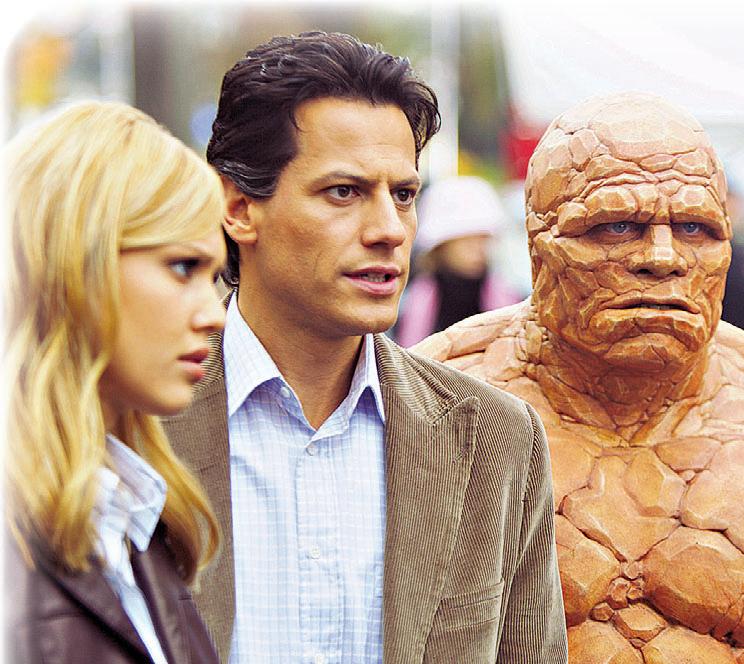

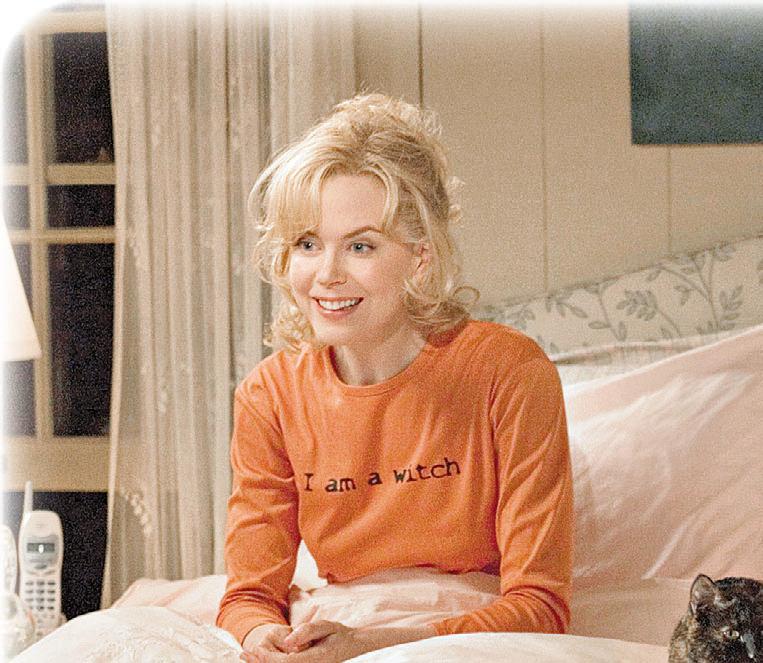

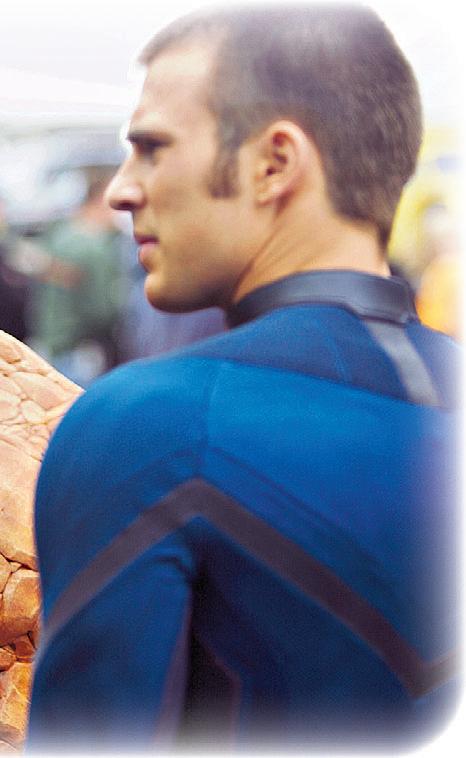
Charlie and the Chocolate Factor y (Warner Bros.)
Entertaining and stylish remake of 1971’s “Willy Wonka and the Chocolate Factory,” as sweet-natured young Charlie (Freddie Highmore), along with four bratty children, wins a visit to a mysterious emporium, run by the reclusive candy-maker Wonka (Johnny Depp). Tim Burton’s take on the Roald Dahl tale is predictably darker than the bright Gene Wilder version, but it’s hugely inventive, combining Dickensian atmospherics with mordant wit and featuring an understated, slyly humorous performance by Depp who seems, at times, to be channeling Michael Jackson’s Neverland persona. The plot contains positive messages about family, loyalty and unselfishness, and only a few scenes of tongue-in-cheek peril that might upset the very youngest viewers. The USCCB Office for Film & Broadcasting classification is A-I - general patronage.

Fantastic Four (20th Century Fox)
Occasionally fun, but mostly unfantastic, superhero movie based on the Marvel comic-book series about four scientists endowed by cosmic rays with superpowers - the elastic Mr Fantastic (Ioan Gruffudd), Invisible Woman (Jessica Alba), self-combustible Human Torch (Chris Evans) and superstrong rocklike “Thing” (Michael Chiklis)- who come together to stop the villainous Dr. Doom (Julian McMahon). Despite ham-fisted dialogue, bad acting, chintzy sets and, at times, cheesy special effects, director Tim Story’s film has a goofy campiness but doesn’t take itself too seriously, and manages to impart a positive message about teamwork and accepting those who are different. Intense comic-book action violence, some sexual innuendo and brief mildly crude language. The USCCB Office for Film & Broadcasting classification is A-II - adults and adolescents.
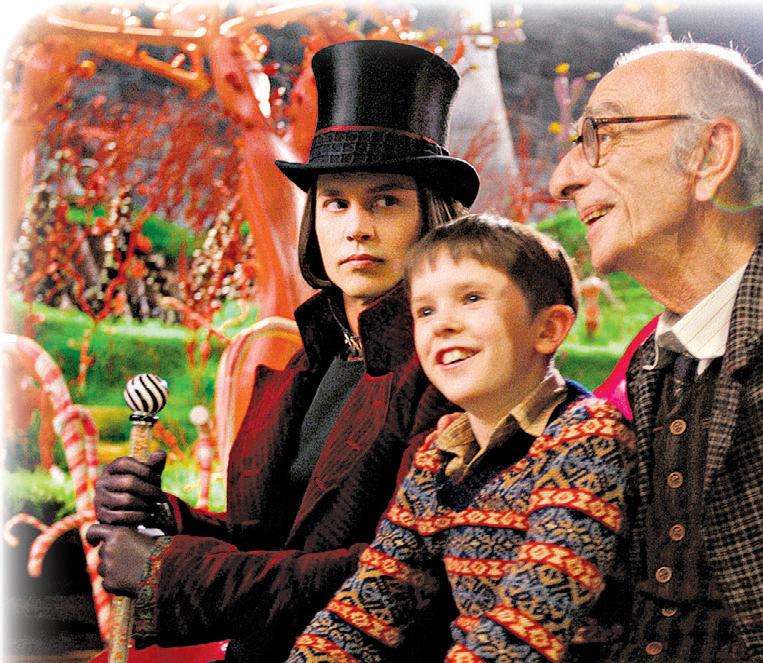

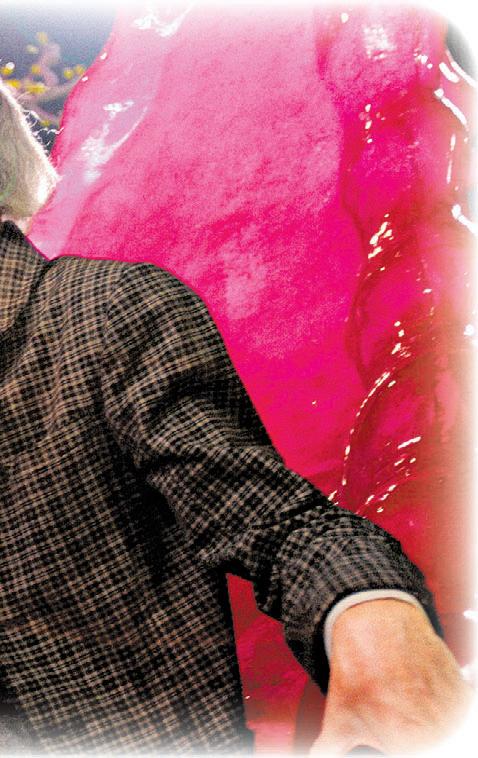
discovery July 2005 Page 10
The Assassination of Richard Nixon (THINKFilm)
Fictionalised fact-based drama set in 1974 about a sadsack salesman (Sean Penn), pushed over the edge by personal and professional failure, who decides to make his presence felt by attempting to do what the title says by hijacking an airplane and crashing it into the White House. Though many viewers may feel its tone and subject matter are too bleak, the film, written and directed by Niels Mueller and anchored by a bravura performance by Penn, paints a chilling portrait of despair, and through its exploration of the dark side of the American dream tries to offer a deeper understanding of what would drive a “normal” person to such extreme acts. A scene of graphic violence, sporadic rough and crude language and profanity. The USCCB Office for Film & Broadcasting classification is A-III - adults.
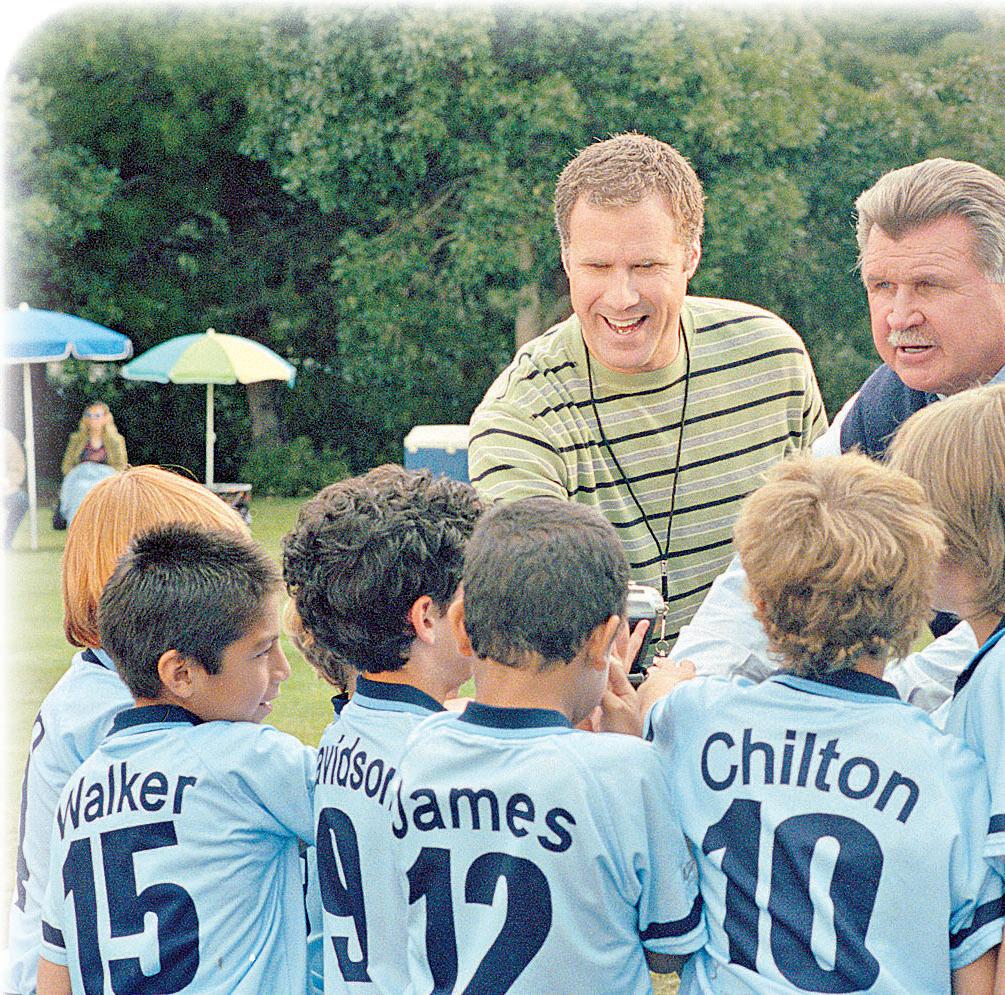

War of the Worlds (Paramount)
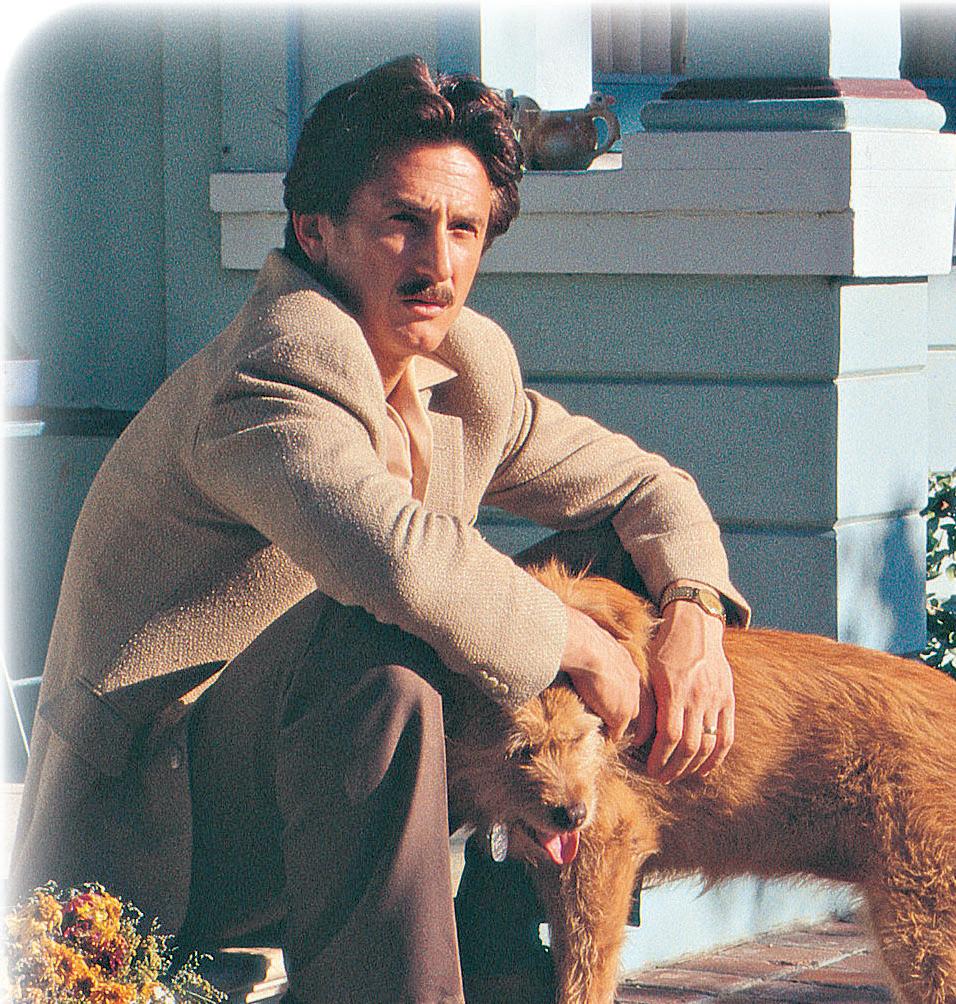

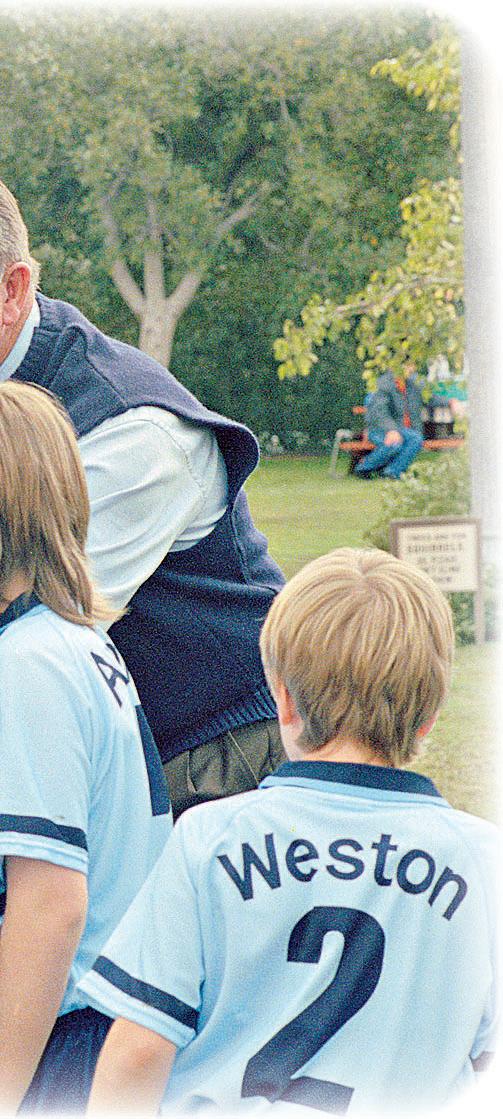
Impressive but distressingly violent updating of H.G. Wells’ classic sci-fi story, about (in this version) a deadbeat dad (Tom Cruise) who is jolted into responsible parenthood when he must struggle to survive and keep his two children (Justin Chatwin and Dakota Fanning) safe amid a hostile invasion by space aliens bent on exterminating humanity. Directed by Steven Spielberg, the decidedly dark and scary thrill ride delivers edge-of-your-seat excitement and knockout action sequences, which though visually stunning never drown out the human drama at its core about a father trying to reconnect with his children. Intense sci-fi violence, including mass destruction and slaughter, disintegrated bodies, a murder with extenuating circumstances, child peril, as well as scattered crude language and profanity. The USCCB Office for Film & Broadcasting classification is L - limited adult audience, films whose problematic content many adults would find troubling.

Kicking & Screaming (Universal)
Mostly funny, if formulaic, comedy about a timid suburban soccer dad (Will Ferrell), who seeks to redeem his unathletic childhood by coaching his 10-year-old son’s last-place team and finds himself in the championship game going head-tohead with his own supercompetitive father (Robert Duvall), who coaches the league’s best squad. Directed by Jesse Dylan and dominated by Ferrell’s manic presence, this farce inspired by “Bad News Bears” imparts a humorous critique of our hypercompetitive culture, but deserves a penalty flag for a crass running gag which makes it questionable fare for very young viewers. Some comic violence, a minor same-sex parent theme, as well as mildly crude language and humour, including some ethnically insensitive remarks. The USCCB Office for Film & Broadcasting classification is A-II - adults and adolescents.
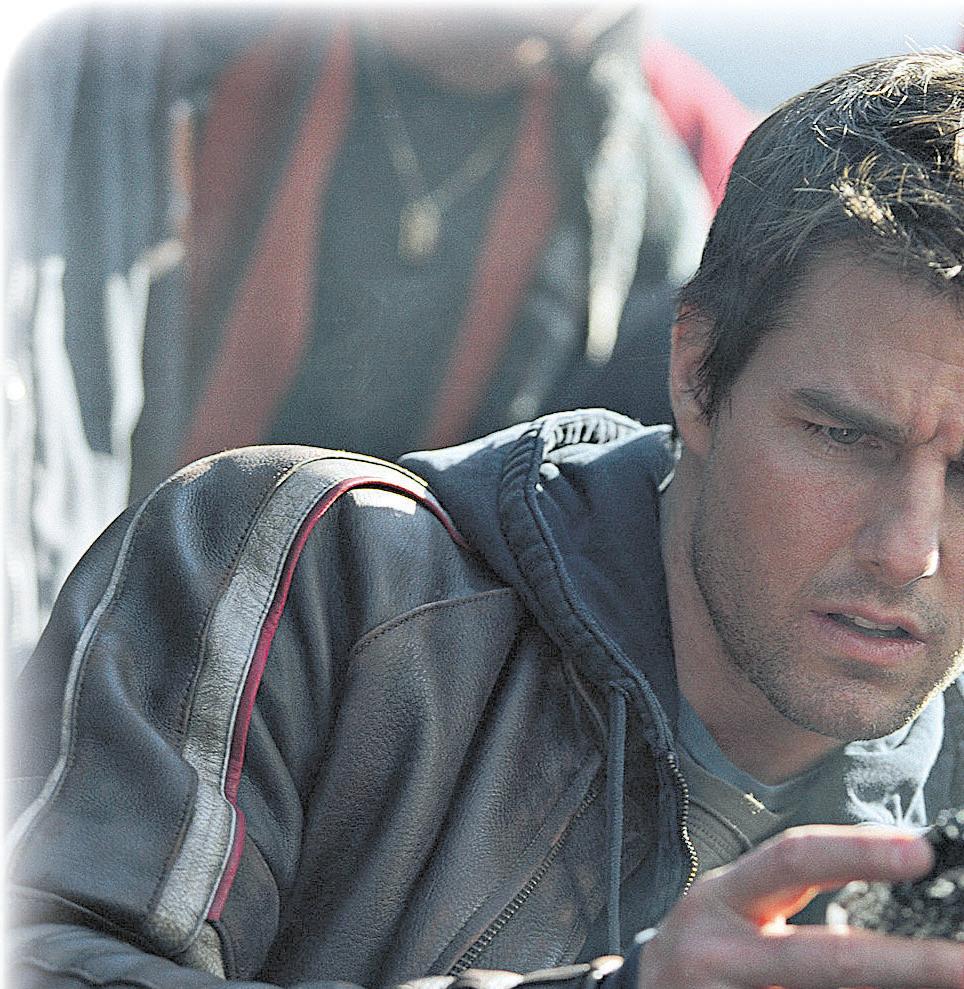

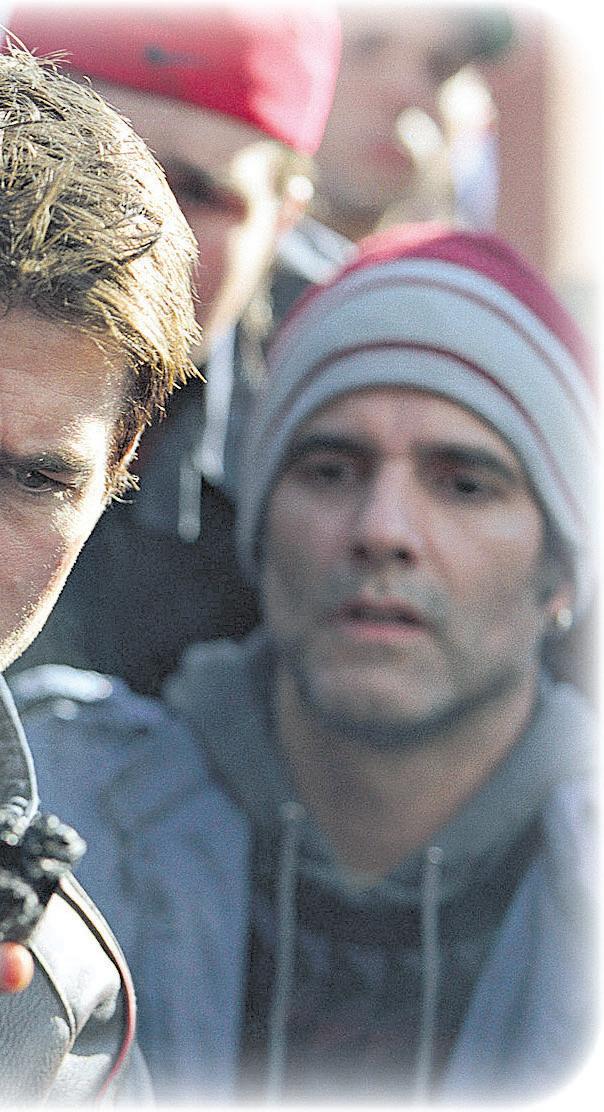
discovery July 2005 Page 11
Avoiding the weekend marriage
■ By Marilyn Gardner
Like ships passing in the night.
That’s the way Mira Kirshenbaum describes the increasingly distant relationship she and her husband developed after years of balancing childrearing and demanding careers.
"We were so busy we couldn’t connect," she says.
"We just didn’t have the feelings of love we used to."
It’s a familiar lament in a timeshort culture.
Of the 110 million married people in the United States, about 85 percent are living what Ms Kirshenbaum calls "the weekend marriage."
With only scattered moments to share on weekdays, these "harried marrieds" hope to carve out time together on Saturday and Sunday.
But even that is often a tenuous dream.
There are always errands to run, children to chauffeur, houses to clean, bills to pay.
The results are sobering.
"The weekend marriage is now the most important and least understood reason why couples end up getting divorced," says Kirshenbaum, a couples therapist in Boston.
Of the 110 million married people in the United States, about 85 per cent are living what Ms Kirshenbaum calls "the weekend marriage."
"Neglect is how you kill a relationship.
“How do you solve problems that come up between you if there's no time to talk?"
Parents exacerbate those time deficits, she finds, by making too many unnecessary sacrifices for their children, whose lives are often overscheduled.
She urges adults to consider their own well being, too.
That was the reasoning behind Nancy and Michael Twiggs decision to spend an hour together each morning after their daughter goes to preschool.
They work from home, she as a writer and speaker, he as an engineering consultant.
"We were getting to a point where we were not having harmony in our marriage," says Mrs Twigg, of Knoxville, Tennessee.
So they set priorities.
"Its a matter of figuring out how to draw the line," she says.
"We've got to have family time,
'Harried marrieds' are what some people are calling them - couples whose hectic lifestyles seem to mean that they have less and less time for each other. Monitor World's MARILYN GARDNER looks at couples who've made a conscious decision to focus on each other.
work time, and couple time." Their activities vary during their hour together.
"Sometimes we go out for bagels and coffee, sometimes we just stay home and do chores together," says Twigg.
"Sometimes we talk over any issues that need to be resolved."
After 10 years of marriage, Roger Darnell and wife, Bedi, of Boone, North Carolina, found that everything changed with the births of their children, now ages 4 and 18 months. "Whenever we try to have the simplest conversation to catch up at the end of a day, the din of our kids quickly escalates until we have no choice but to turn our attention to them," he says.
The Darnells' coping mechanisms include making time for conversation every evening after the children are in bed.
They also go out for a weekly ‘date night.’
Marty Friedman, who writes and speaks on marriage and relationships, sees men and women taking different approaches to the problem.
"Men tend to think that their marriages will run on automatic," he says.
"Increasingly, men want to be involved and caring fathers, so their parent time is very important to them in the evenings and weekends.
I often see men who are in ’parenthood’ but not a fulfilling marriage.
A healthy, loving marriage is more important to children than anything else."
Couples should agree not to talk about the children when they go out, or to keep it to 10 minutes for the evening, suggests Mr Friedman, author of "Straight Talk for Men About Marriage."
He encourages them to limit children’s organised activities and to get away with their wives for at least one day every three months.
Polly Franks, a child advocate in Richmond, Virginia, faced a moment of truth when her husband saw her making out her daily list of things to do.
"He asked me to put him on the list," she says.
Now they shop for groceries together as one way of carving out moments as a couple.
They also set aside several hours for a dinner out, even if only once a month, so they have uninterrupted time to talk.
Planning ahead for the empty nest
Ms Franks emphasises the importance of together time for the long run.
“The kids grow up and they leave, and then where are you if the marriage is gutted out?”
For Kirshenbawn and her husband, Charles Foster, the solution began with the realisation that even one good connection a day matters,
where’s the love?” In some cases, even the free time vanishes. The current mantra of retirement - “Keep busy!” - has its rewards.
But it can also separate couples if each partner is racing off to individual activities, leaving little time together.
“It’s great if seniors can be active,” Franks says.
“But I’ve seen so many of them who are in so many clubs and
not escape the time crunch. Walter Young of Kennesaw, Georgia, found one solution to the challenge of too little time with each other: commuting together.
Initially they drove separately.
Then, drawn by financial incentives from Georgia’s Clean Air Campaign they began taking one car.
Now, as they inch along the highway they gain an hour of conversation a day.
Weekday talks free up weekends
“It definitely has helped to have extra time to talk,” said Mr Young.
“We get the most of the career

she says. This may be gestures as basic as a smile, a hug, or a kiss.
A listening ear helps, too. “Listening is one of the first things that goes when you don’t have time,” she finds.
The pair began discussing problems by e-mail to save their “limited couple time” for happier subjects.
They competed to make good things happen in their relationship every day.
They also cut out activities that weren’t essential.
Then they set aside two hours each week for themselves.
“Once we booked it, it was inviolable,” says Kirshenbaum, who has turned her research into “The Weekend Marriage: Abundant Love in a Time Starved World.”
Even retired couples, who supposedly have an abundance of leisure, can face challenges.
“If they haven’t taken care of their love when they were working, then it is very difficult when they’re retired,” Kirshenbaum says.
“Now they have the time, but
different things that couples can get torn.” Similarly, in remarriages, husbands and wives may each spend time with their respective children and grandchildren.
“Loyalties get divided,” Franks observes.
“Quite often they pull apart as opposed to pulling together.
They don’t have to do everything together.
But if you can find a few things you have in common and make time for them, a little bit can make a world of difference.”
In Cleveland, Susanne Alexander, an author, and her husband of eight years, Craig Farnsworth, who works in technical sales, take another approach.
Every morning they “stay bonded” by spending a few minutes praying together.
They also agree on a positive quality to practise for the day.
“This could be patience, kindness, peacefulness, thoughtfulness or whatever seems to fit our needs that day,” Ms Alexander says.
Even couples without children do
and work stuff out of the way while we’re in the car. “When we’re home, we can deal with home issues.”
That leaves more time on weekend for relaxation and for what he described as their “minihobby” – helping relatives with household projects.
Because both of the Youngs had divorced parents, they feel that it’s important to nurture their relationship as well as their careers.
“Work tends to just pull you in sometimes,” he says.
“You have to step back and say: Wait a minute, we need to take some personal time.”
It’s an approach Kirshenbaum advocates too.
Because of fear, she says, many families regard economic advancement as the most important priority.
But she asks, “what good is making more money if you lose your love in the process?
“Valuing love, I really think it’s holy.”
- Monitor World
discovery July 2005 Page 12
Practical touch at Seton College

Students from Seton Catholic College have been involved in a work experience program with The University of Notre Dame Australia.
The program known as INSTEP allows students to participate in structured workplace learning in an external organisation. It’s available to year 11 and 12 students and goes toward their academic accreditation.
Careers Coordinator at Seton Catholic College Mark Bruhn said, “The program is a fully accredited school subject. Students are assessed by their workplace supervisor on their acquisition of set skills such as motivation, initiative and responding to instructions, which are expected to be learned in the duration of their placement. They are then graded accordingly”.
“We have 120 students participate in the program each semester in a variety of industries. It’s a great opportunity for them to learn about the real world and also list the experience on their CV’s to assist them in future employment and gaining entry to TAFE or University,” he said. Notre Dame’s Information Technology (IT) Department recently had two Seton students, Matthew Oates and Michael
Papas, working in their department through the program.
Director of Information Technology and Systems Andrew Crow said the program gives the students valuable workplace experience and provides them with a first-hand insight as to what goes on in an IT Department.
Mr Crow explained, “We wanted to give the students a view of the different aspects of IT as well as teach them basic skills such as undertaking set tasks independently and being able to report on the progress.”
One of the projects the students were involved in was undertaking the rollover schedule of around 150 of the University’s leased computers. “Some of the computers leased by the University were due to be returned to the leasing company. The students were given the massive responsibility of identifying all the equipment, organising repairs if required and ensuring the computers were reimaged, so they could be returned back to the company in their original state.
They handled this task superbly and consequently were of great assistance to our department. They’ll certainly be welcome back,” said Mr Crow.
John Paul’s words live on for students
■ By Hugh Ryan
True freedom is knowing what is right and wrong and having the personal freedom to choose what is right, Archbishop Barry Hickey told about 150 Year 12 students at Prendiville College recently.
The Archbishop was celebrating Mass for them on their chosen theme “Celebrating Freedom”, and also presenting to them his booklet summarizing Pope John Paul II’s messages to young people.
He invited the young people to refer to the themes of the book as they moved through vital stages in their life, and told them to preserve the book because it would not be published again.
The Archbishop published it and presented it to all Year 12 students in the Archdiocese in 2003, 2004 and this year. It has not been on sale anywhere and will not be used in schools again.
Archbishop Hickey said that running through the book was the message “Be Not Afraid”, a motto Pope John Paul repeated over and over, and lived inspiringly.
“Be not afraid to stand up for your faith and to stand up for what is right, even when other influences are pushing you in other directions,” the Archbishop said.
Drawing on the Gospel for the day in which Jesus spoke about the value of building your house on rock rather than on sand, he told the students that Jesus was not offering advice to builders.
He was telling them to build their lives on His teaching and on Him. He emphasized the importance of the message later when he changed Simon’s name to Peter (rock) and declared, “on this rock I will build my Church … and I will give you the keys of the kingdom of heaven”.
“Each of us must build our lives on his word, his values, his teaching, and his presence.
“We are one with Him and His Church through Baptism and Confirmation,” Archbishop Hickey said.
“It is not easy to be a Christian today when there is constant criticism that our teachings are too tough, but it was tough in Jesus’ day, too.
“When Jesus told people He would give them his flesh to eat and his blood to drink in the Eucharist, many found the words too hard to believe and they walked away from him... When he asked the Apostles whether they, too, would go, they did not fully understand him, but Peter answered for them that they had nowhere else to go because He had the words of eternal life.
“As your Archbishop and
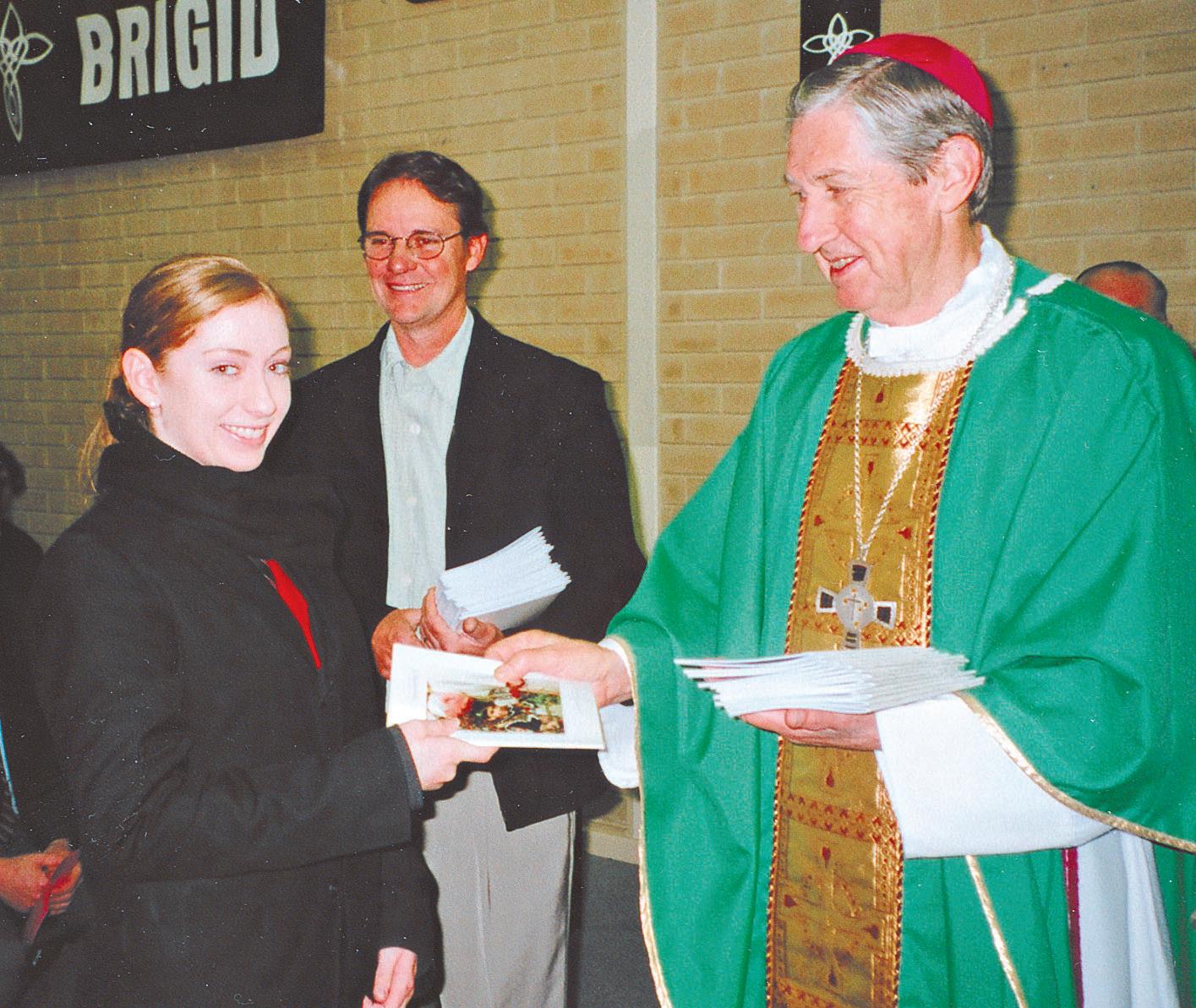
“I ask you to acknowledge the supremacy of God by
him at Sunday Mass.
life.
“I urge you to be an influence in
the world for good, both in your own environment and in standing up for laws and actions that support justice and expose injustice.”
discovery July 2005 Page 13
successor of the Apostles, I expect you to live up to high standards of personal morality in all aspects of
worshipping
Archbishop Barry Hickey hands out his papal booklet to Prendiville College students.
Matthew Oates (front) and Michael Papas sorting through some of the University’s computers.
Do different genders mean different schooling?
A psychologist-doctor has written a new book looking at why divergences run deep
Boys and girls have marked physical and psychological differences and hence they have to be educated differently. This is the thesis of a book published earlier this year by psychologist and family doctor Leonard Sax.
In "Why Gender Matters" (Random House), he takes issue with the modern tendency toward genderneutral child-rearing. According to this theory boys and girls behave differently because of the way they are educated, or because of cultural factors. Sax describes how in the mid-1990s he began to see more and more young boys arrive at his office with requests for medication, due to their supposed attentiondeficit disorder.
The real problem, Sax eventually discovered, was that the secondand third-graders were being educated by teachers who did not understand the differences in how boys and girls learn. For a start, he explains, a girl's sense of hearing is more sensitive than that of boys, so the tone of voice used by a female teacher may be fine for the girls, but does not engage a boy's attention. interest in the
subject of sex-based differences. His research showed that behavioural differences are not just caused by cultural factors. Research into men and women who have suffered strokes reveals that in men the left and right hemispheres of the brain are strongly compartmentalised, with the former dedicated to verbal skills and the latter to spatial functions. This division does not exist in women, who use both hemispheres of the brain for language.
Evidence exists that from the composition of the retina to the way images are processed by the brain, there are notable differences between males and females.
And analysis of human brain tissue shows that there is a difference in its composition, at the level of the proteins. This difference is not due to hormonal changes that occur at puberty, but is something innate and is present even in children.
Sax also notes that girls and women can generally interpret facial expressions better than most boys and men. He cites research carried out at Cambridge University, showing that even young babies reveal differences in the way they pay attention to objects.
interested in other people's faces, while male babies prefer to pay attention to moving objects.
Seeing differently
In fact, evidence exists that from the composition of the retina to the way images are processed by the brain, there are notable differences between males and females. This results in females being more aware of differences in colour and texture, while males discern with greater facility location, direction and speed.
This difference is then reflected in the toys that young children prefer - dolls for girls and trucks for boys - and the type of pictures they draw, with girls using more colours and including more people in their drawings.
This has consequences when it comes to schooling, Sax explains. Given that most kindergarten teachers are women they tend to encourage their students to draw people and to use lots of colours. This can lead to discouragement among boys, whose different style of drawing is not appreciated by the teacher, leading them to conclude that "art is for girls."


more likely to disobey their parents when told not do something risky.






Sax explained that while boys enjoy doing risky things, they also systematically overestimate their own ability, whereas girls are likely to underestimate it. Researchers at Boston University noted that almost all drowning victims are male, for example. They concluded that a major contributing factor to this was that males consistently overestimated their swimming ability.
students, boys respond well to stress created by confrontation or timeconstrained tasks, an approach that does not give good results for girls.
Sax is careful to point out that every child is unique and, also, that not all boys or all girls are the same. At the same time, he writes, this "should not blind us to the fact that gender is one of the two great organising principles in child development - the other principle being age."

Male and female differences are also evident in the way people navigate. Men are more likely to use abstract concepts such as north and south, and to refer to distances. Women, by contrast, prefer using visual landmarks. Neuroscientists have found, Sax noted, that even by the age of 5 the male brain uses a different part of the brain to navigate, the hippocampus, while the female brain relies on the cerebral cortex.
Boys are also more attracted to violence and conflict - for example, in their reading preferences - than girls are. And in their relations with others, boys are notably readier to fight and to respond aggressively than girls.

Feelings

















Notable differences also exist in how emotions are handled. Children are generally not capable of analysing their emotions, because this area of their brain has not yet developed. In adolescence, emotions are increasingly dealt with by the cerebral cortex, the area of the brain associated with higher cognitive functions.
Language skills develop earlier in girls, for example, while spatial memory matures earlier in boys.
Girls and boys, he explained, differ substantially in the speed with which their brains mature. The various regions of the brain develop in a different sequence in girls compared to boys. Therefore, rather than saying that boys develop more slowly than girls, it is more accurate to affirm that girls and boys develop at a different pace. Language skills develop earlier in girls, for example, while spatial memory matures earlier in boys.
In fact, Sax argued, these differences in cerebral capacities between the sexes are larger and more important during childhood and adolescence than the differences between adults, when both males and females have reached full maturity.









But this change is far more pronounced in girls' brains than in those of boys. So, if at school adolescents are asked by their teachers to write or talk about their emotions this places boys at a disadvantage.
Friendships are also carried out differently. Girls tend to organise their friendships around spending time together, talking and going to places. Friendships among boys, however, revolve around a common interest in games and activities, with conversation and secret-sharing not holding a high priority.
Brain development





Another area with marked differences between males and females is in the willingness to accept risk. Most boys enjoy taking risks, and are also impressed by other boys who take risks. This is not the same for girls, who generally are less likely to seek out risky situations just for the sake of it. Boys are also
Learning methods between the sexes vary greatly too. Most girls, Sax explained, naturally tend to seek out a teacher's help, are more likely to follow instructions, and to do their homework. Boys, by contrast, will generally only consult a teacher as a last resort and are less likely to study if they find a subject uninteresting.

And when it comes to motivating
This difference, he argues, should be acknowledged by educators, and then used positively. Just trying to stop boys from fighting among themselves or playing dangerous games, for example, is insufficient. The solution is not to try to eliminate this aggression in males, but to transform it by providing constructive alternatives.
And when it comes to teaching, instead of prescribing medications to boys to treat attention problems, a better solution would be to separate the sexes and use teaching methods appropriate for each sex. In a word: letting boys be boys. - Zenit
discovery July 2005 Page 14
Choosing the right iPod for you
Connector accessory to load pictures from a digital camera onto the iPod without having to first process them in iTunes. (Normally, you need to load your pictures onto your Mac or PC, where iTunes processes them for iPod compatibility, and then run a sync to download them to your iPod.) The iPod with colour display can also take advantage of the Apple iPod AV Cable to connect the iPod to a television or projector.
People who don’t need this iPod’s photo features shouldn’t dismiss it too quickly. Even though its photo capabilities are its most glamorous feature, the addition of colour improves everything about the iPod’s interface. Calendar events are far easier to differentiate, Solitaire is finally playable (because with colour you can tell one suit from another more easily), and colour album art is just cool no matter how you look at it.
While the iPod with colour display offers more storage than the iPod mini (offering capacities of 20 and 60GB versus the mini’s 4 and 6GB hard drive capacity), it takes an hour longer to fully charge than the mini (five hours versus four for the mini) and offers less skip-protection — providing up to 17 minutes of protection versus up to 25 minutes for the mini. It also offers less playtime-per-charge (Apple rates the iPod’s playtime at up to 15 hours of music playback and up to 5 hours of slideshow playtime though we’ve managed over 17 hours of playtime on a colour iPod when pressing play and walking away). But this iPod boasts a larger display, which allows you to view three lines of text on the Now Playing screen as compared to the two lines displayed by the mini

(and zero lines of text shown on the display-less iPod shuffle).
These iPods have all the music and storage features switched on, unlike the mini and the shuffle, this iPod allows you to record voice memos
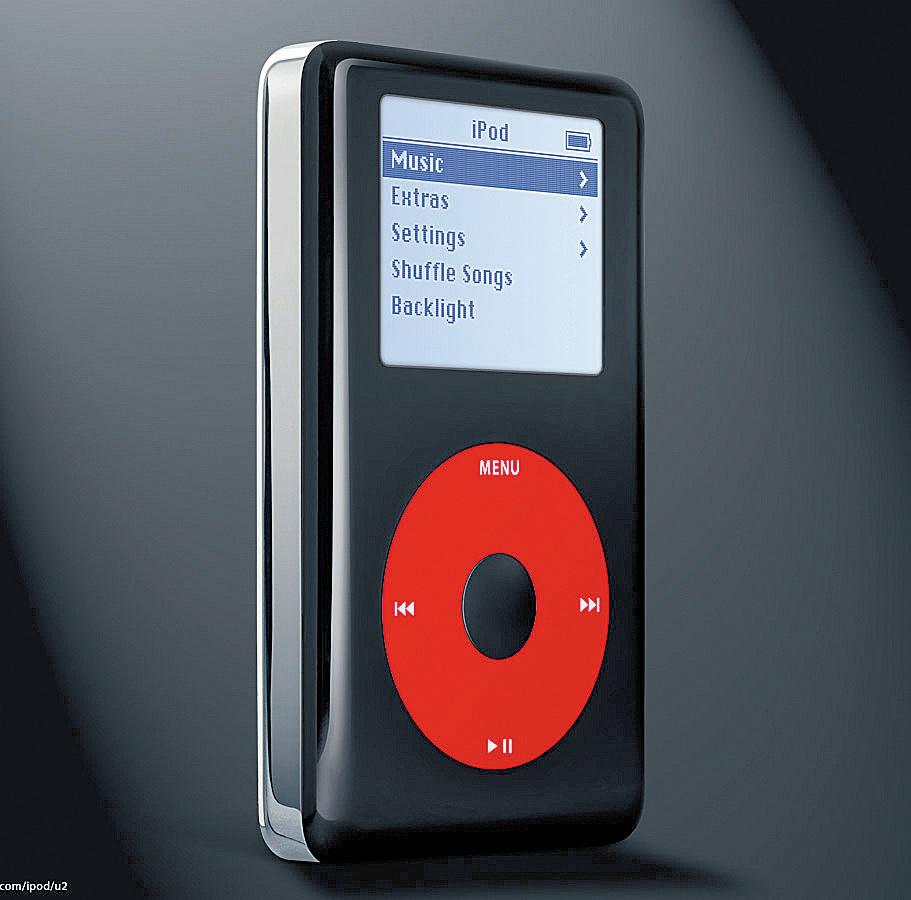
with a third-party voice recorder such as Griffin Technology’s iTalk or Belkin’s Voice Recorder for iPod with Dock Connector. You can also store and view digital pictures on the iPod with Belkin’s Media Reader for iPod with Dock Connector (Belkin’s Digital Camera Link for iPod with Dock Connector will download pictures to the iPod but you can’t view them without first processing them through iTunes).
The HP iPod models —called Apple iPod + HP — differ slightly from Apple’s offerings. As I write this, HP still offers a 20GB monochrome iPod. It will also sell you a 30GB colour model for slightly more plus its own 60GB colour iPod that’s identical to Apple’s offering except for the two companies’ warranty support.
Capacity and Price: 20GB (approximately 5,000 songs), $449; 60GB (approximately 15,000 songs), $599; iPod U2 Special Edition 20GB (approximately 5,000 songs), $499.
Ideal Usage and User: If you’re looking for the ultimate in an iPod, a colour display, the ability to view and project pictures, a
iPodmini
When you consider the priceto-storage ratio, the mini isn’t as good a deal as the iPod with colour display. Cost per megabyte for the $299 4GB iPod mini is around 5 cents. And a megabyte on a $359 6GB mini costs about 4 cents. Compare this with about 2 cents per megabyte on a $449 20GB iPod, and you see that people who want the most for their money may pass on the mini’s cool exterior and handy size in favour of the highercapacity iPod.
If you intend to put a lot of hours on your iPod, you’ll find the mini’s playing-time capabilities very attractive. Though Apple suggests that the 2G mini can play for up to 18 hours, I’ve been able to play nonstop music on a 6GB mini for more than 26 hours on a single charge. As I mentioned earlier, the best I’ve done with a colour iPod is just over 17 hours.
Capacity and Price: 4GB (approximately 1,000 songs), $299; 6GB (approximately 1,500 songs), $359.
Ideal Usage and User: The mini, with its vibrant green, blue, pink, or silver case, is Apple’s most fashionable iPod. If you have a sense of style and want to store a goodly number of songs on a small, portable music player, you may just find it hard to resist.
iPod shuffle
decent amount of playing time, and enough storage for a very large music library — you and the iPod with colour display were meant for each other.
iPod mini (second generation)
When Apple first released the iPod mini, the company positioned it as a competitor to other manufacturers’ high-end flash memory-based music players.
But it wasn’t long before people forgot all about how the iPod mini compared to the competition and simply thought of it as a great way to shove a thousand tunes into the coolest-looking music player on the market.
The iPod mini has nearly the same functionality as the original fourth-generation iPod. Its screen is smaller, so it doesn’t display as much information as the larger iPods (the mini’s Now Playing screen, for example, doesn’t display the title of the currently playing album). The screen remains monochrome. And these iPods don’t support voice recording and media storage via third-party peripherals.
Apple’s least-expensive iPod offers a host of advantages: it’s affordable enough to be an impulse buy, it sounds as good as any other iPod, it never skips (because it stores music on solid-state flash memory rather than a moving hard drive), it’s highly portable, and it holds more than enough music to get you through a long drive or a marathon run (though rated at up to 12 hours of play time, it can get much more). It doesn’t, however, include a screen for navigating to specific songs. And its capacity is limited enough that only people with very small music collections will be able to store an entire library on it.
Capacity and Price: 512MB (approximately 120 songs), $149; 1GB (approximately 240 songs), $199.
Ideal Usage and User: The shuffle’s non-skip nature and small size make it the perfect companion for exercising. And it’s easily cheap enough to become your second, “just kickin’ around” iPod. It’s also a good choice for kids (or adults) who tend to misplace their valuables. (Losing a $149 shuffle is a lot easier to swallow than misplacing a $599 iPod.)
Note: the prices in this article are
discovery July 2005 Page 15
Recommended Retail Prices only Continued from Page 5
THE UNIVERSITY OF NOTRE DAME AUSTRALIA
Dark age looms in absence of wisdom
(article
The world faces another dark age if universities ignore the getting of wisdom for their students, the Archbishop of Sydney, Cardinal George Pell says.
Speaking at a Mass to mark the start of work on Sydney’s Notre Dame University campus at Broadway, Cardinal Pell said that while wisdom was elusive, Notre Dame was dedicated to the search for truth, starting from a set of Godly and Catholic perspectives.
“A university is distinguished from a technical school, not simply by a higher level of expertise and knowledge but by the fact that universities are also about the inculcation of wisdom in all their students,” he said. “If the getting of wisdom is systematically ignored and despised in our centres of learning then we are headed for another dark age.”
The Mass was celebrated at St Benedict’s Church Broadway on Friday June 10. A foundation ceremony with Notre Dame’s Vice Chancellor Dr Peter Tannock followed.
OPENDAY
Come One, Come All to the Notre Dame, Open Day. There will be information sessions, workshops and demonstrations as well as half hourly campus tours, for all to enjoy!
For information on the courses listed please refer to the full Open Day schedule.
To receive an Open Day Schedule please contact 1800 640 500 or visit www.nd.edu.au
Written by Kerry Meyers
Cardinal Pell told the congregation that the start of work on the site, comprising old school buildings, a convent and the presbytery also meant revitalisation for the historic parish – the second oldest in Sydney.
He thanked the University for its acceptance of his invitation to found a campus in Sydney.
“I confidently predict that we shall have many continuing reasons to be grateful for their presence among us – academically, spiritually, culturally,” he said.
Dr Tannock said Notre Dame Sydney will make a substantial contribution to the quality and diversity of higher education in Sydney.
“I am delighted that planning is well on track to commence courses in Arts, Business, Education, Law and Nursing at the St Benedict’s campus in 2006,” he said.
In 2004 Cardinal Pell invited Notre Dame to establish a campus in Sydney on the Broadway and Darlinghurst sites. The university was established in Western Australia in 1989.
Sunday 14 August 2005, 10am - 4pm
• Accounting & Finance
• Arts, Behavioural Science, Communications & Media, Social Science
• Biomedical Science
• Commerce degrees – incorporating ALL major areas
• Counselling
• Environmental Science
• Exercise and Sport Science
• Health and PE, Exercise & Sport Science and Sport & Recreation
Broome Library Opening
The Hon Dr Brendan Nelson, Federal Minister for Education, Science & Training officially opened The University of Notre Dame Australia’s Broome Campus Library on July 1. Notre Dame’s Broome Campus Board of Management member Esther Bevan along with the Foundation Dean of the Campus Sister Pat Rhatigan, conceived and coordinated the plan for local Aboriginal artists to contribute to the construction cost of the library by producing artworks and donating the proceeds of their sale. Twenty-seven artists participated in the project, as for many it was a way of contributing to something they believed would benefit their children and grandchildren. Dr Patricia
• Human Resource Management
• Information Technology
• Law
• Life Sciences
• Management
• Medicine
• Nursing
• Physiotherapy
• Postgraduate Studies
• Public Relations & Marketing
• Teaching seminar
• Theology, Philosophy and Ethics
Kailis, a Governor of the University and her late husband philanthropic entrepreneur, Michael Kailis planned to auction the works in New York. Fearing that the works would be sold individually and the collection lost to the Kimberley, Dr Kailis purchased the collection and donated it back to the Broome Campus, which is now exhibited in the new library. Vice Chancellor Dr Peter Tannock said, “The University is extremely grateful to all those who have contributed to such a worthy cause. The library is a wonderful facility that will benefit our students, staff and the community immensely”.
Success at International Moot Competition
In 2005, the Graduate School of Lawat Notre Dame entered a team in the prestigious Willem C. Vis International Commercial Arbitration Moot Competition for the first timesince 2000. This is the twelfth annualVis Moot, with over a thousand participants in over 150 teams from around the world. The goal of the Vis Arbitral Moot is to foster the study of international commercial law and arbitration for resolution of international business disputes through its application to a concrete problem
of a client and to train law leaders of tomorrow in methods of alternative dispute resolution.
Notre Dame finished in third place out of 150 entrants world wide.For Notre Dame to finish in this position is a spectacular achievement. Our students excelled over some of the most highly reputed Universitiesin the world, including Harvard, Cambridge and Colombia, and remained as the leaders for the eight Australian entrants.

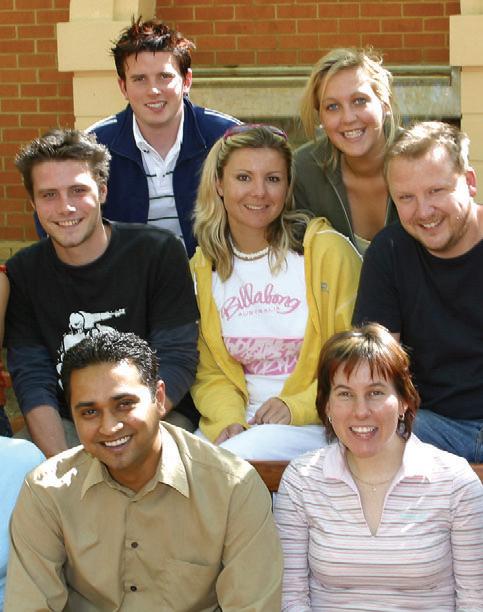
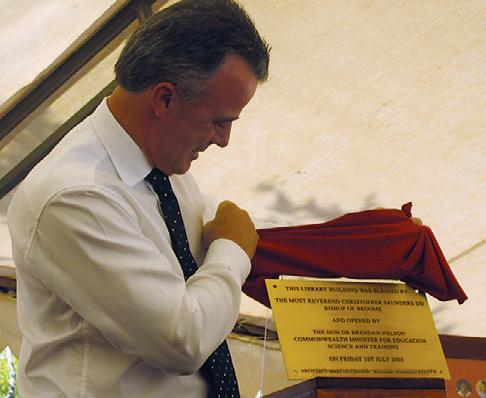
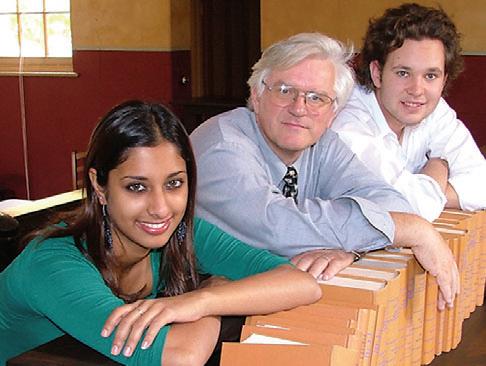
discovery July 2005 Page 16
Fremantle & Broome: 1800 640 500 Sydney: (02) 8204 4400 Email: enquires@nd.edu Website: www.nd.edu.au AUGUST 2005
reproduced courtesy of The Catholic Weekly)
Professor Gabriël Moens with students
Dr Brendan Nelson unveils the plaque



















































 ■ By Paul Gray
■ By Paul Gray

































